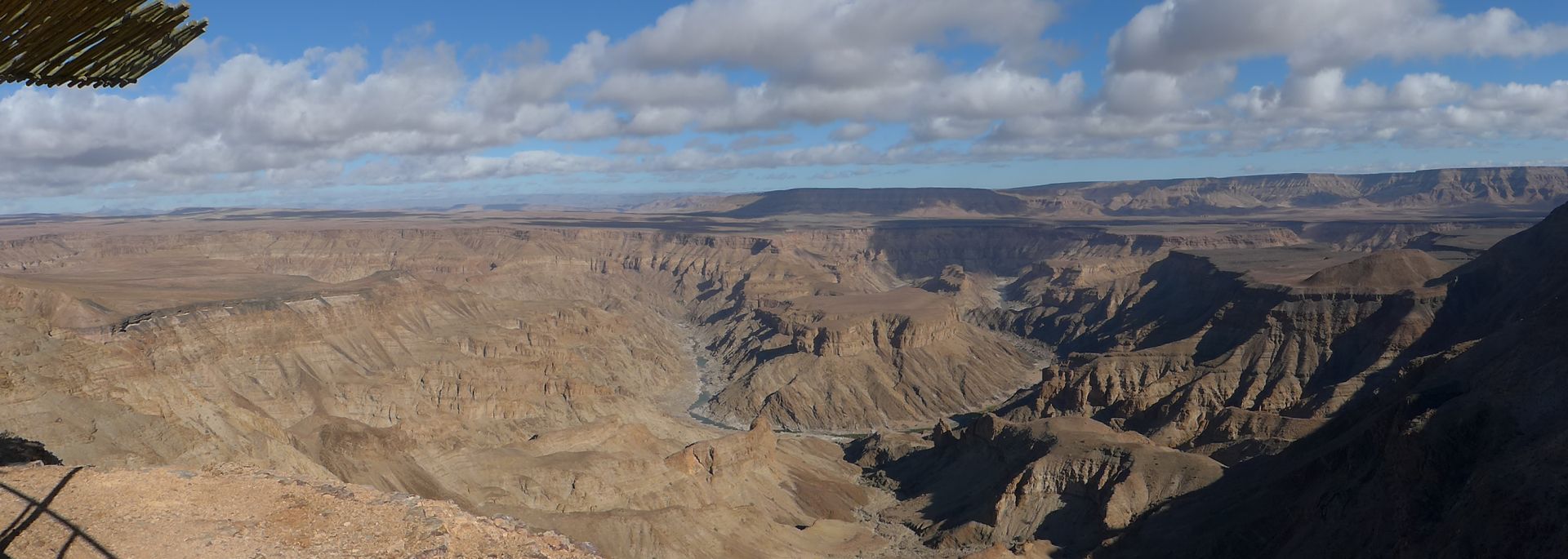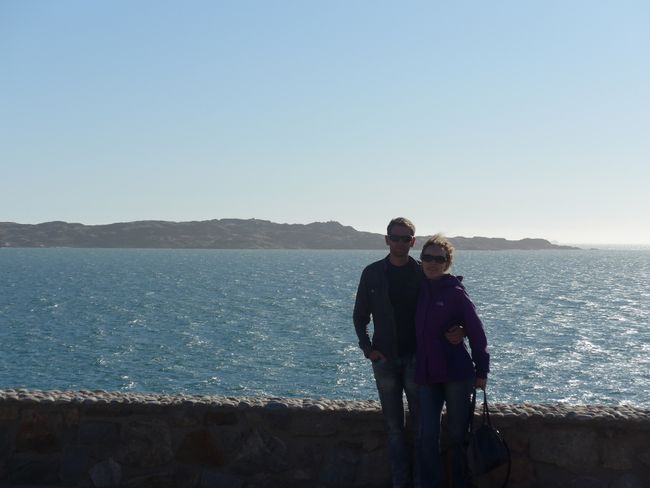Hiking through Bielatal, Pirna, and in search of lynxes.
Objavljeno: 05.07.2020
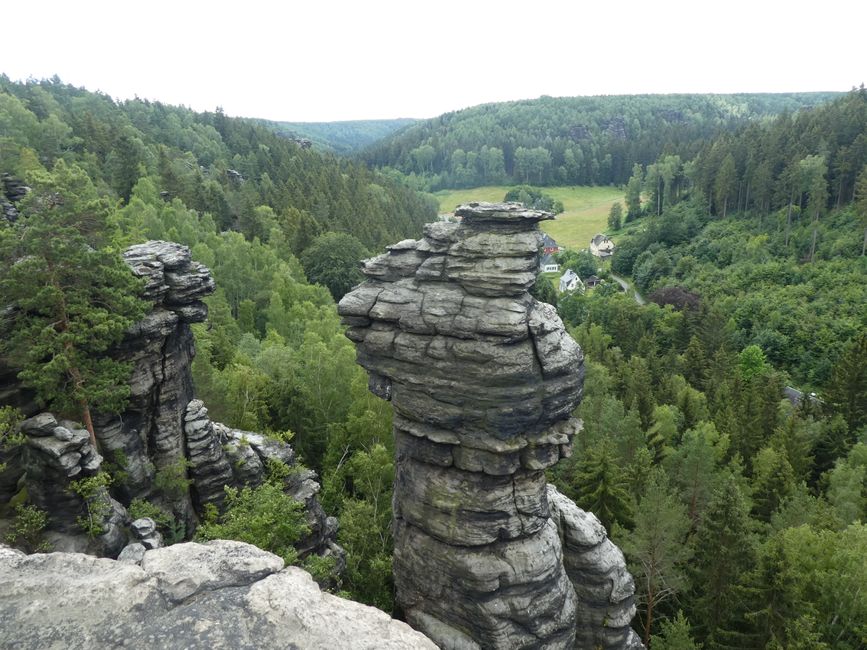
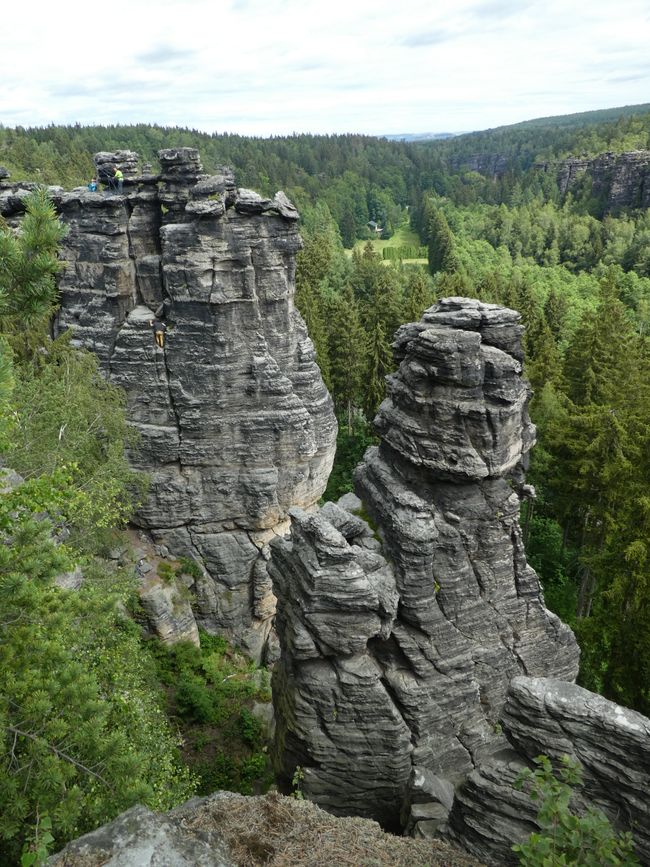
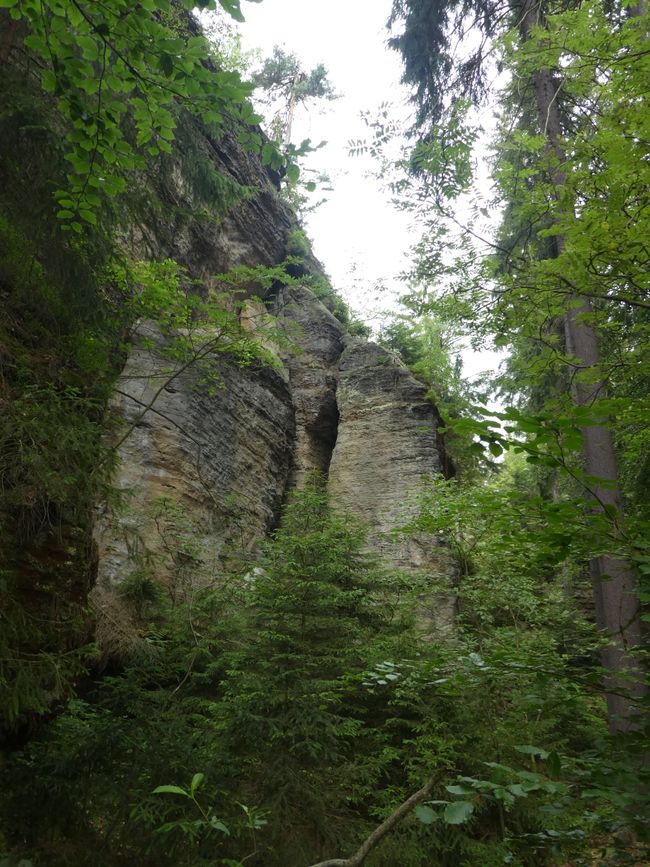
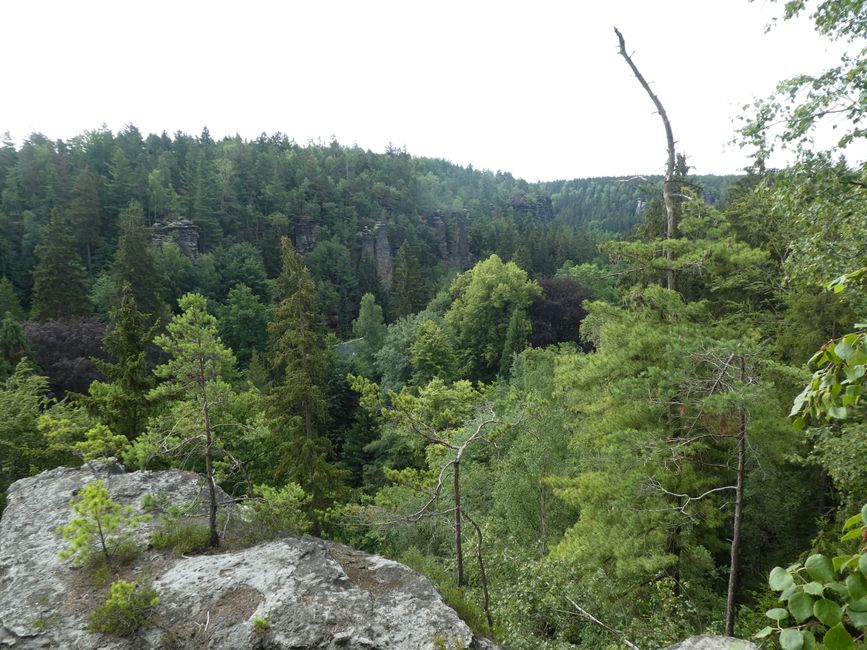
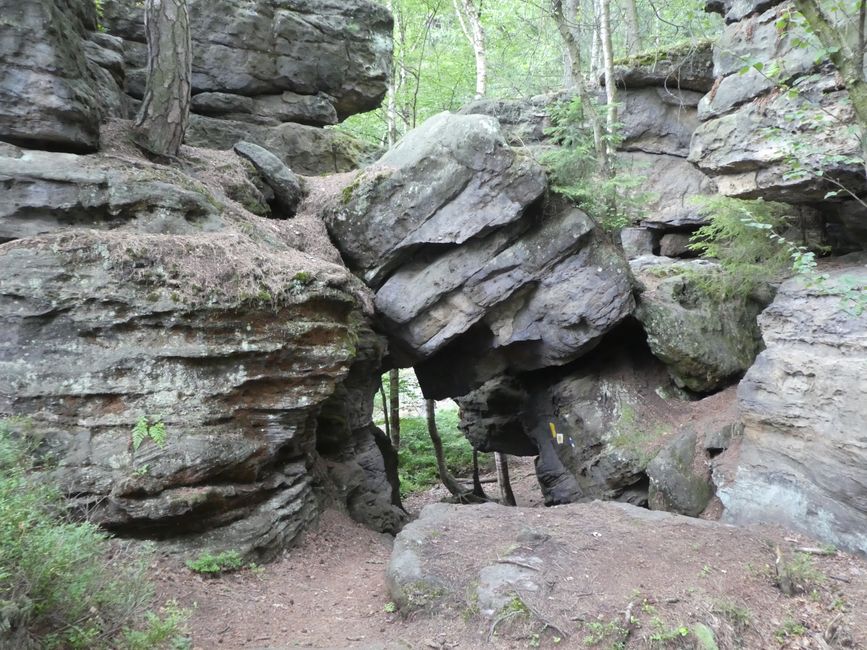
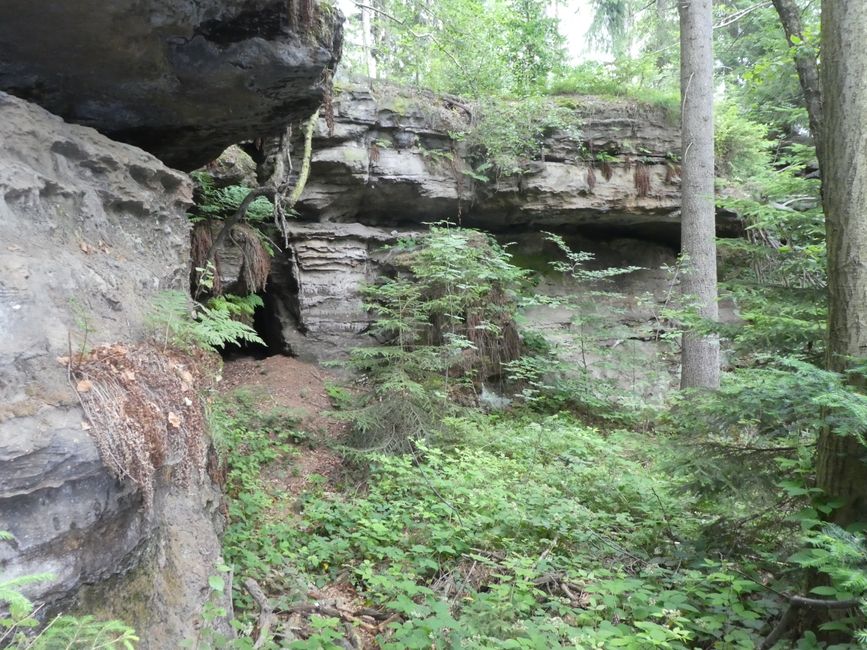
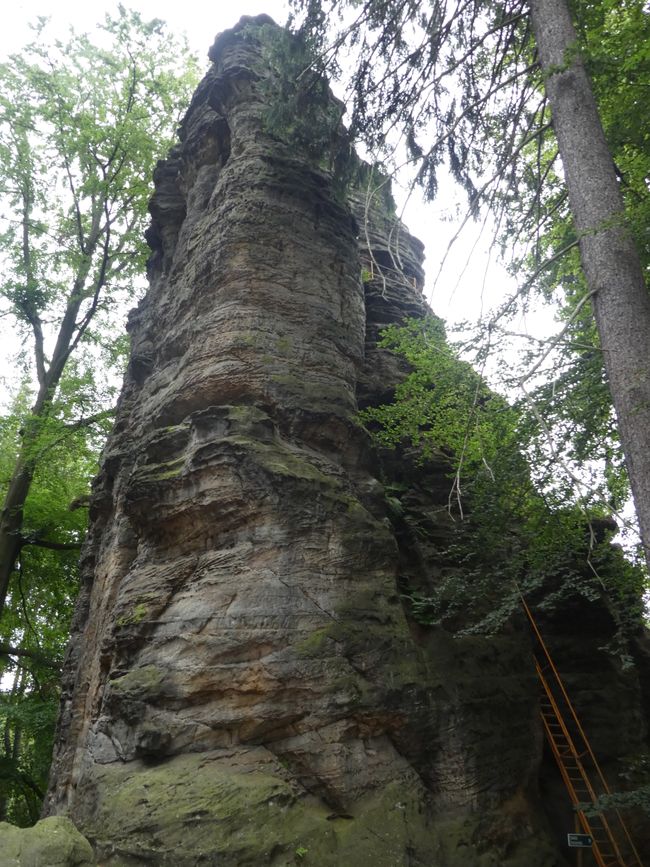
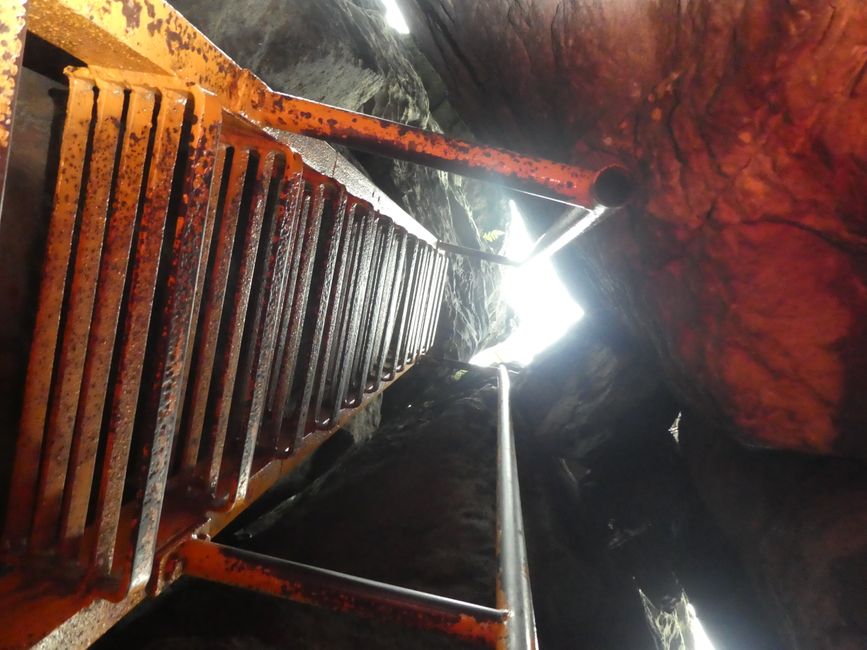
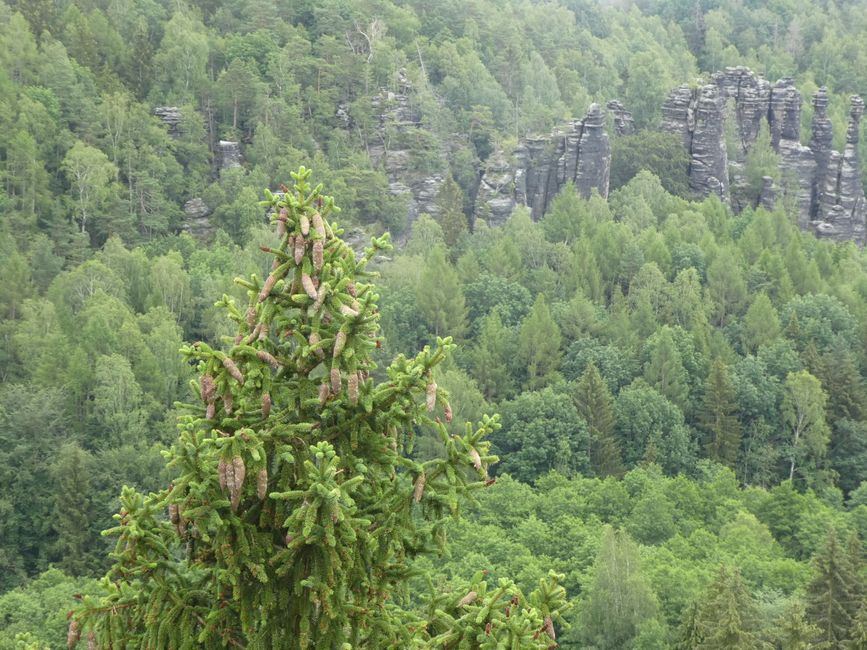
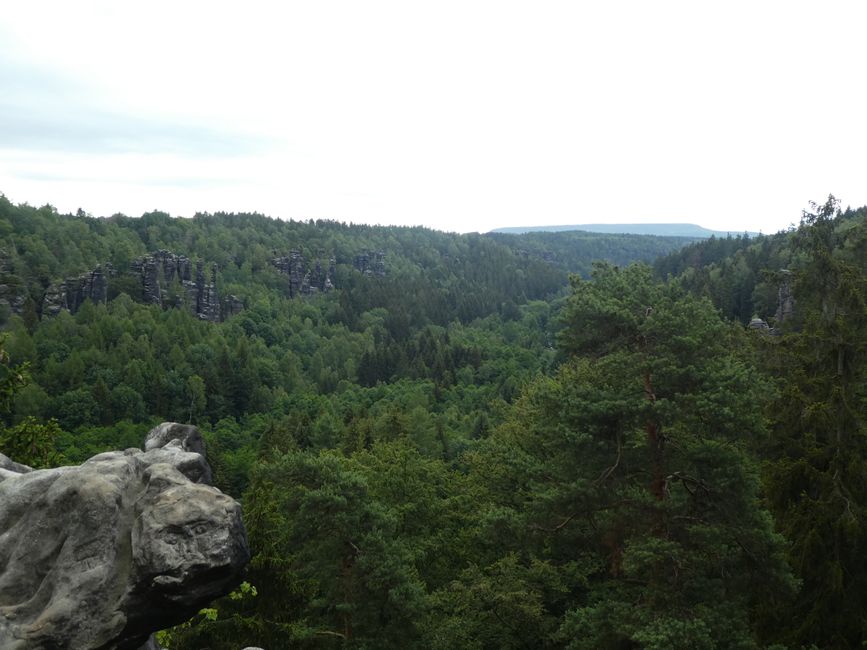
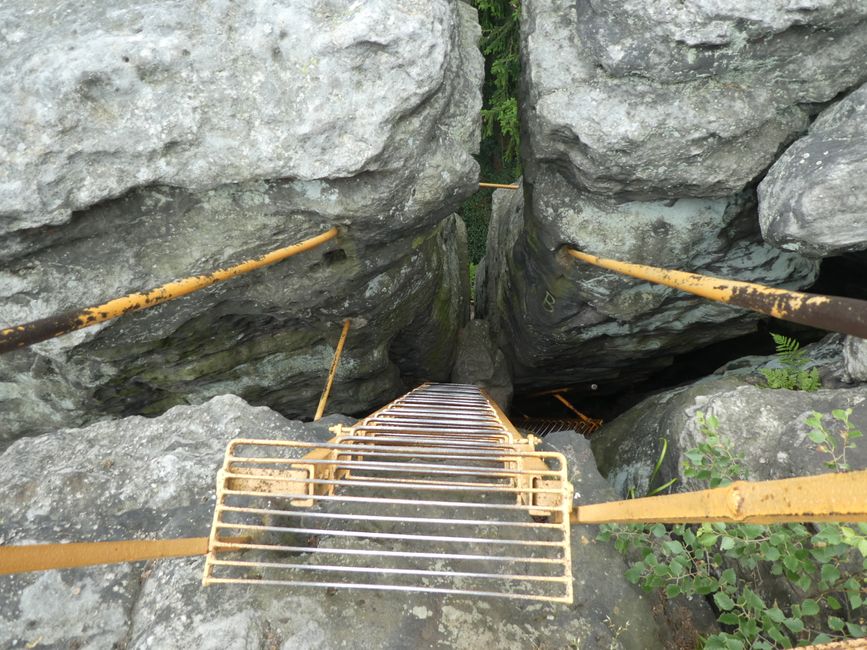
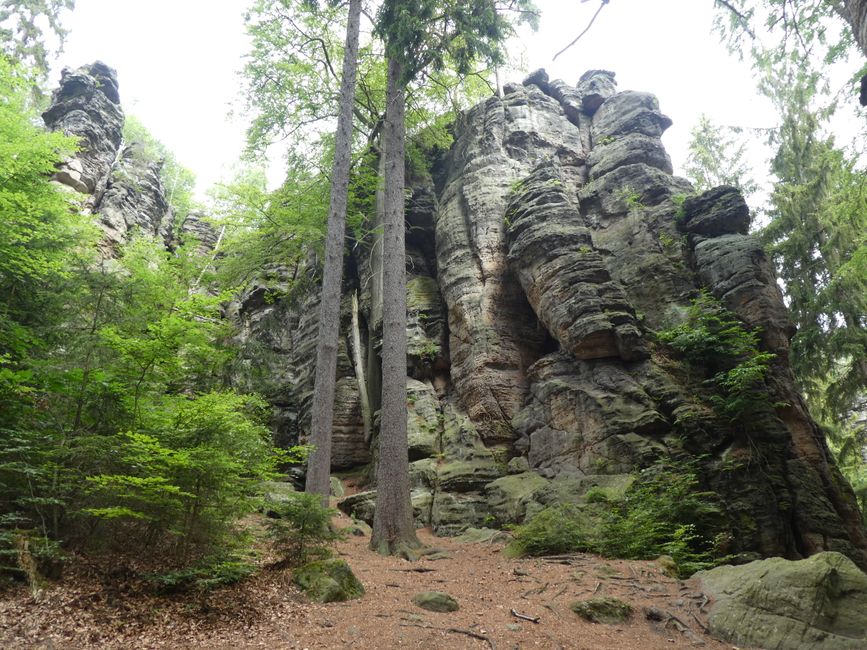
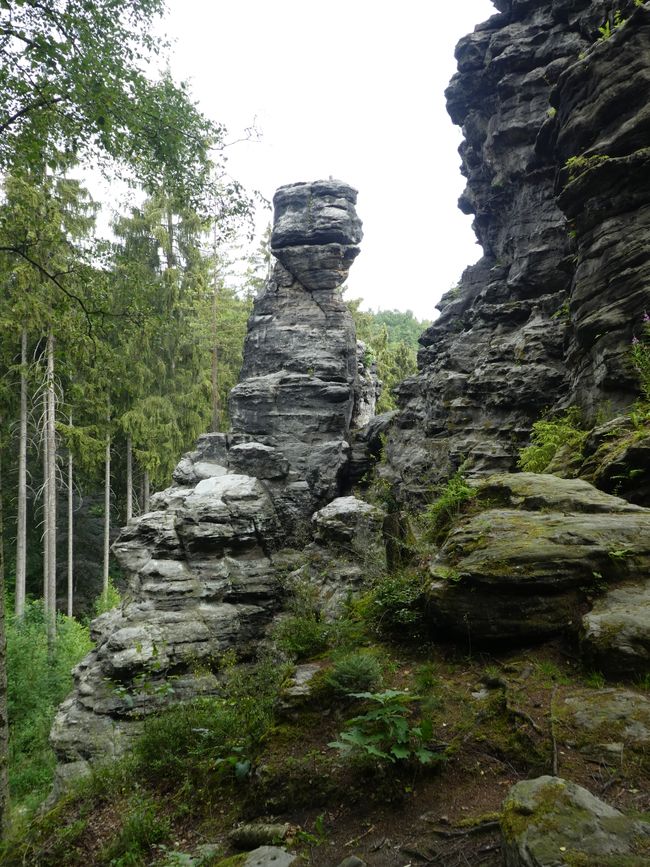
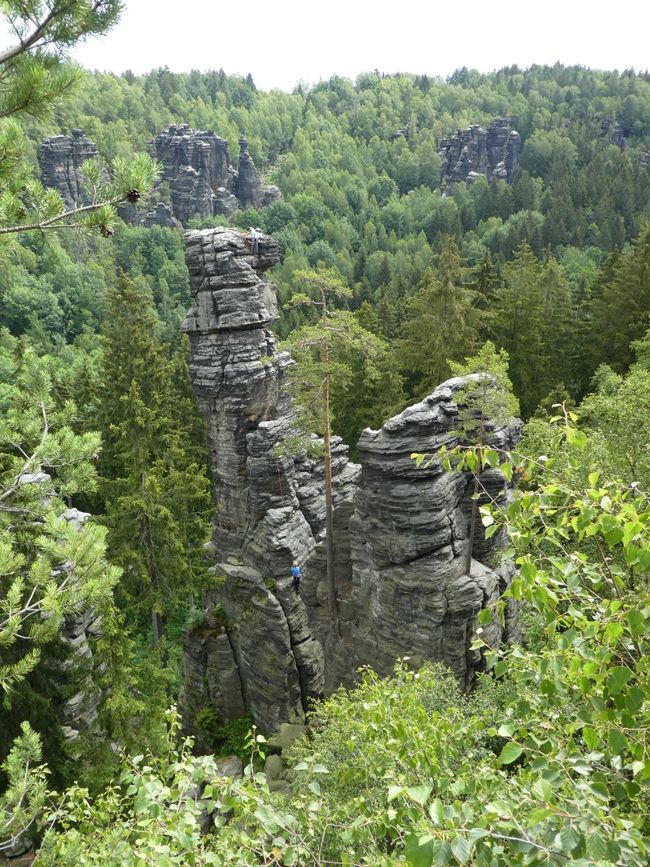
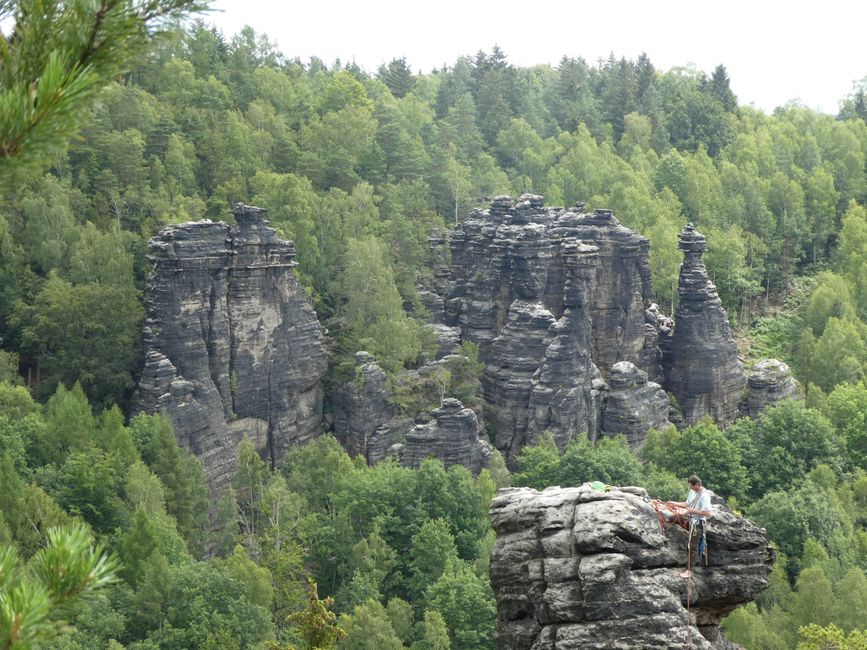
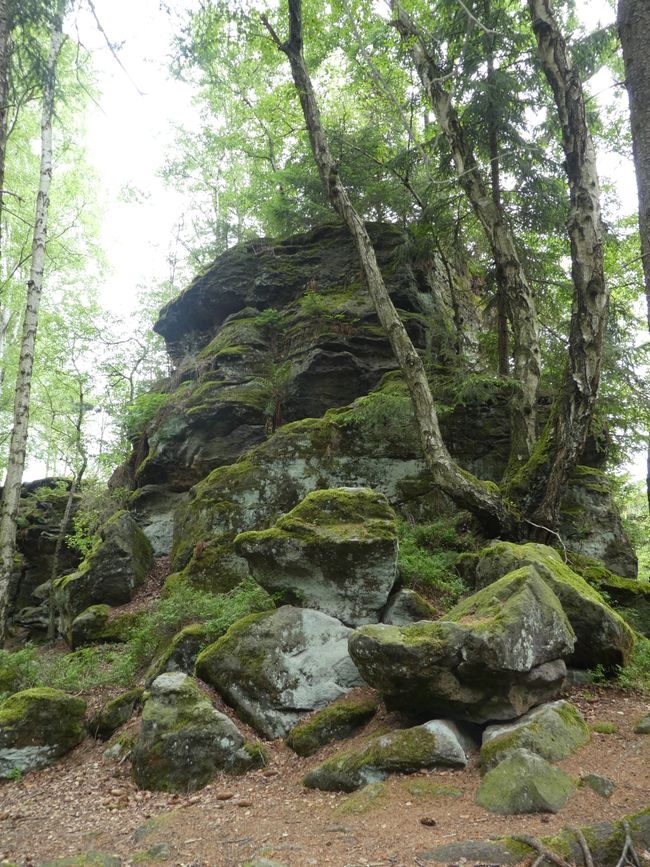
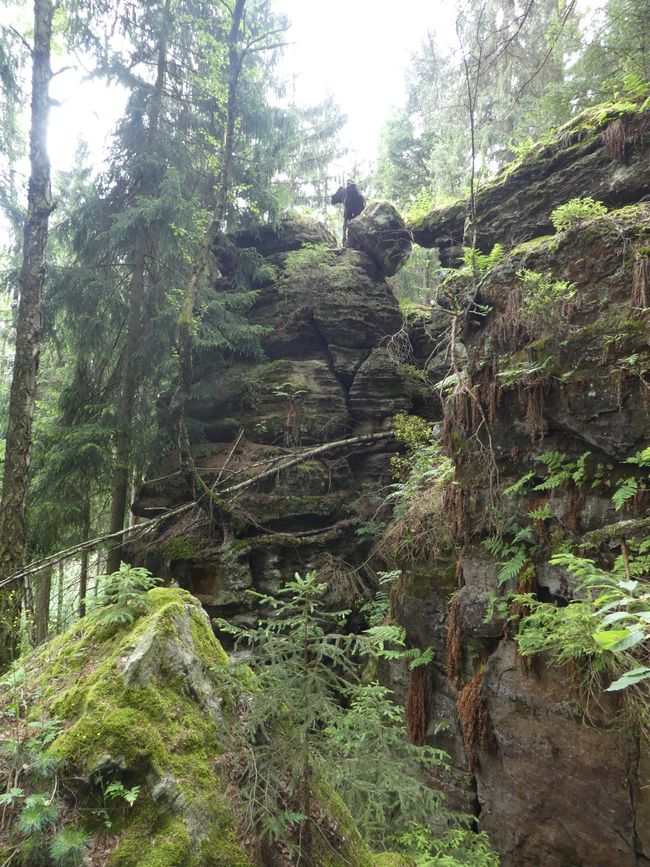
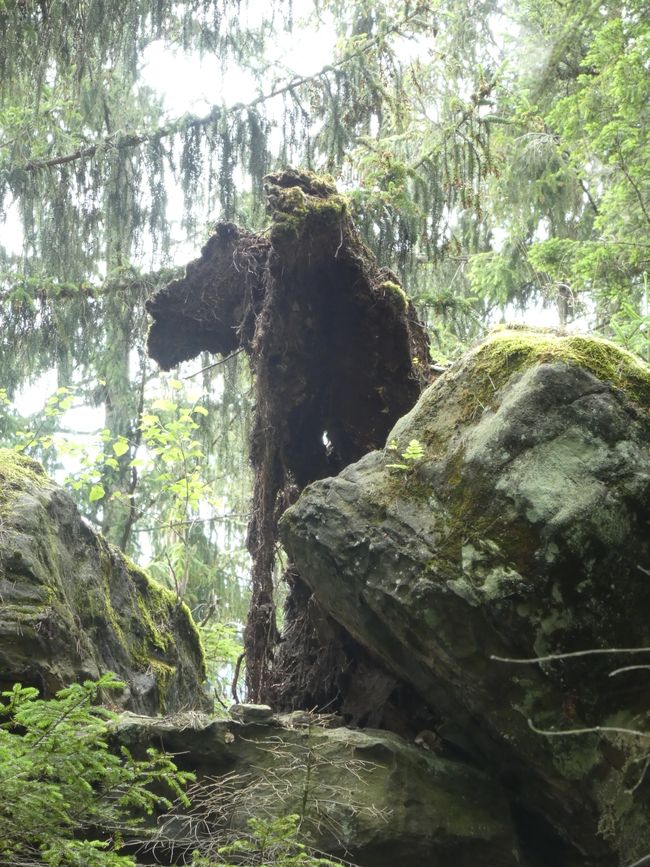
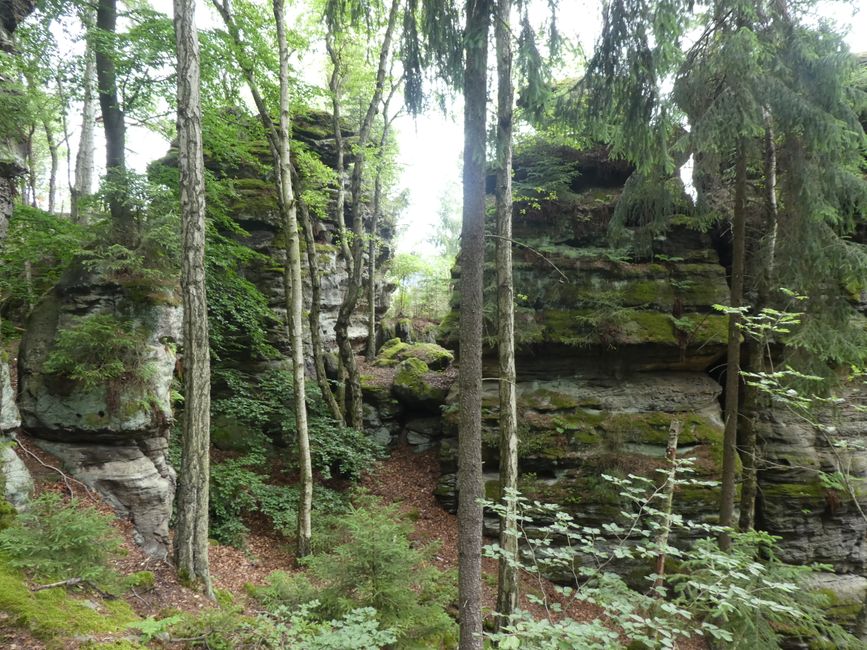
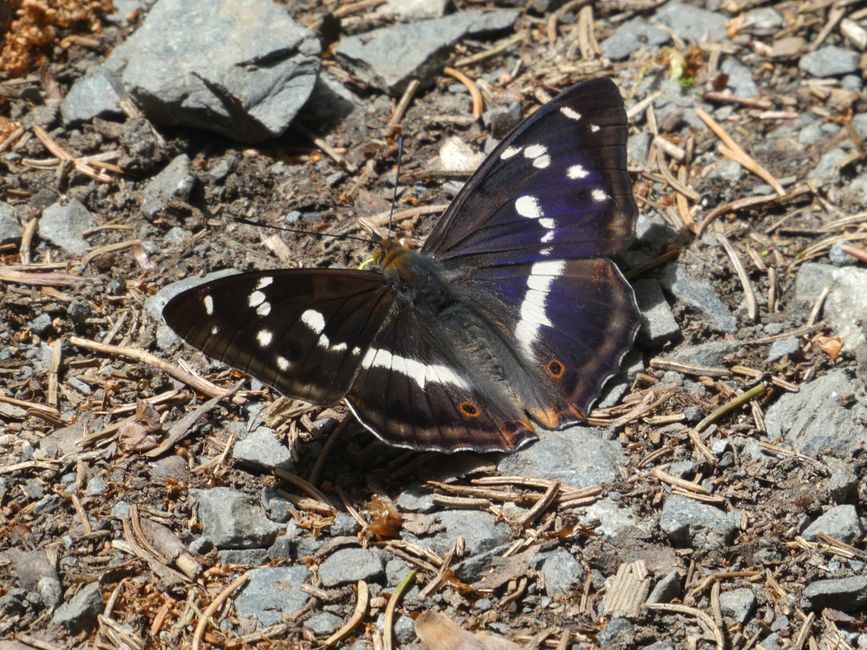
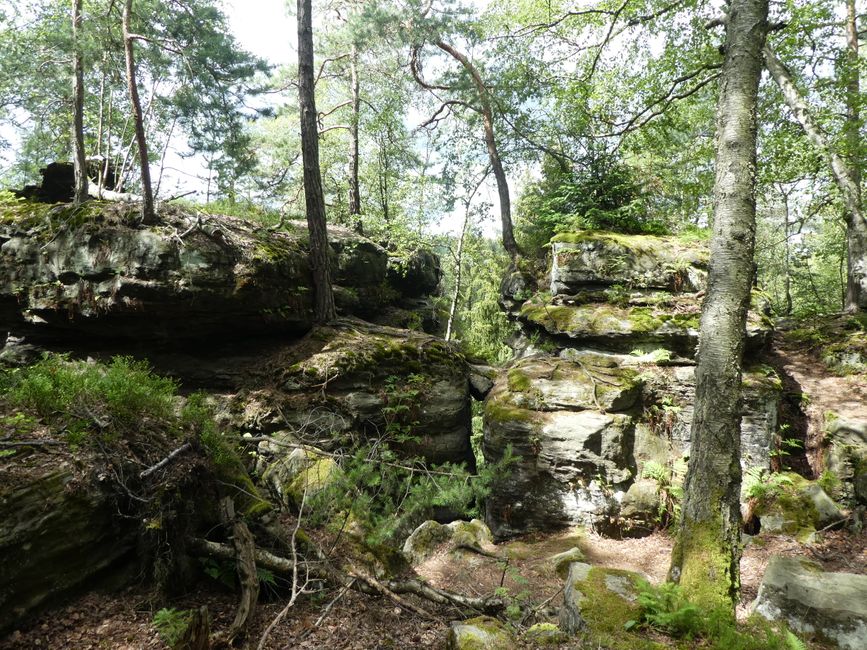
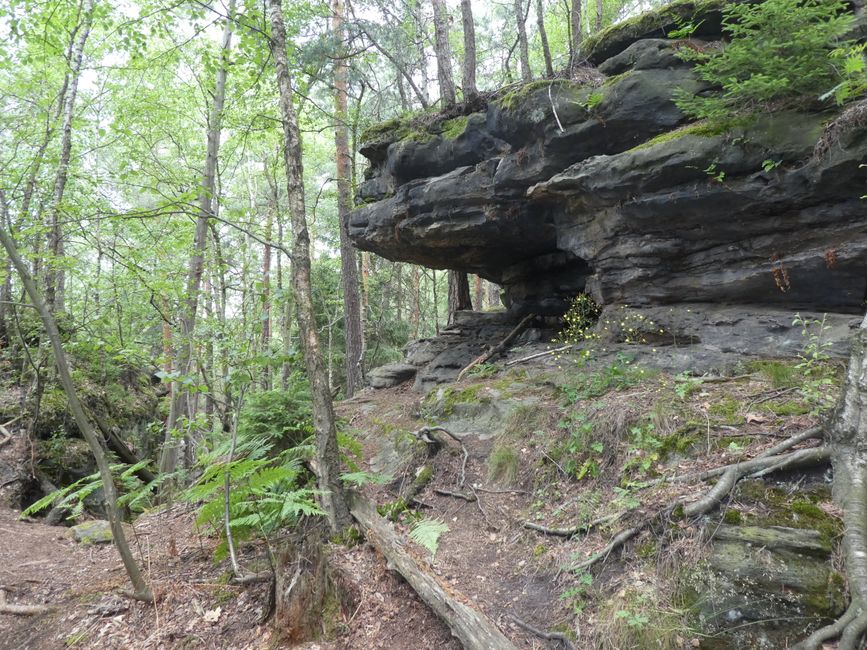
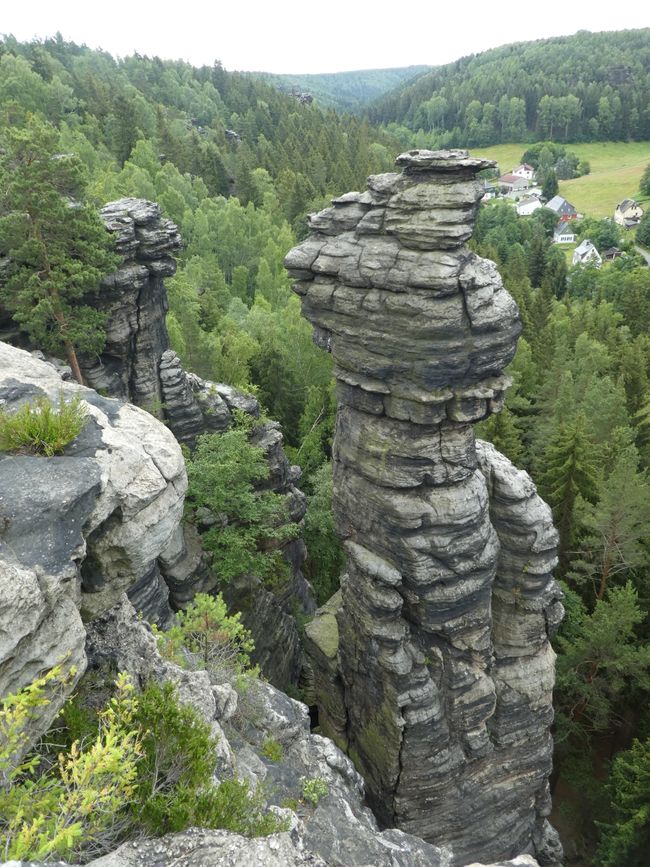
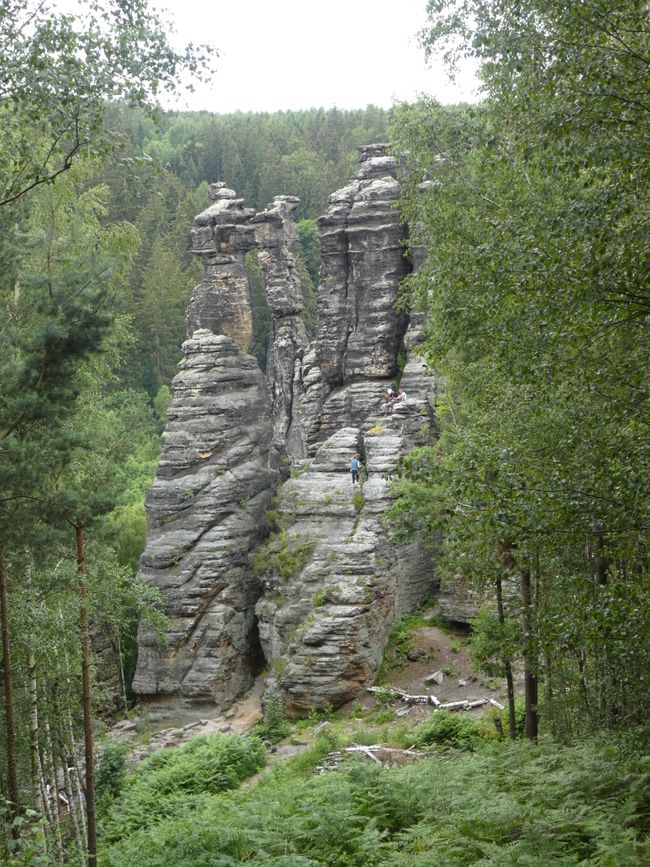
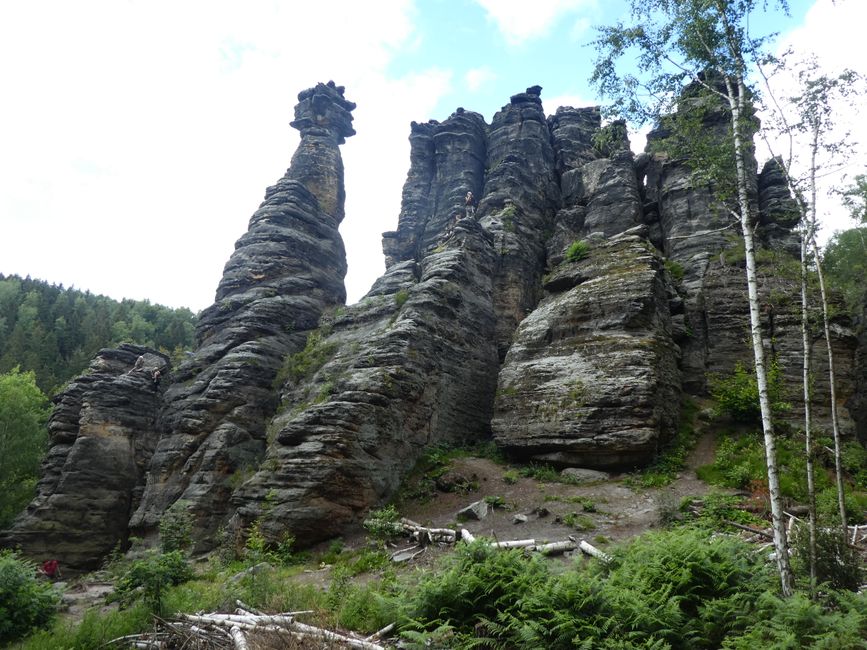
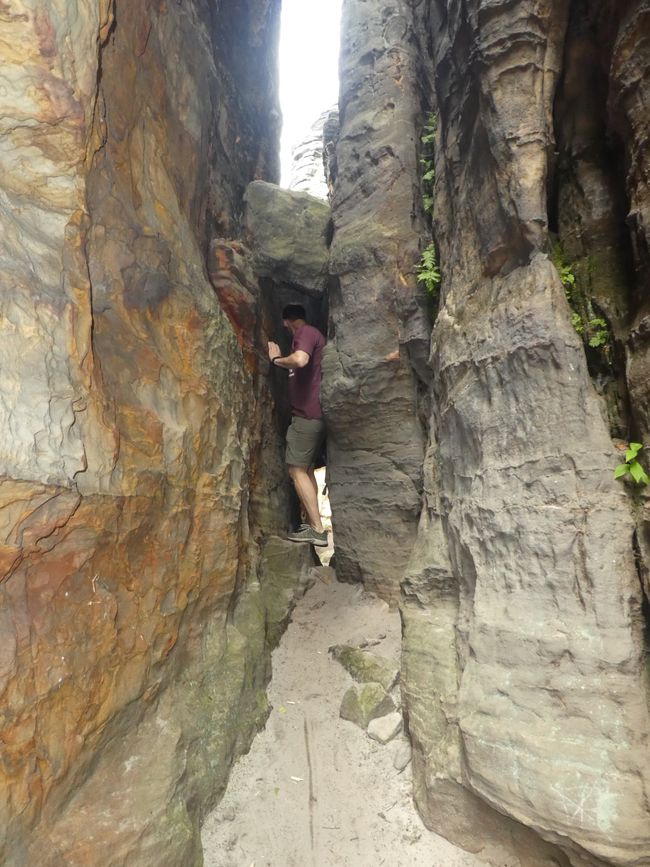
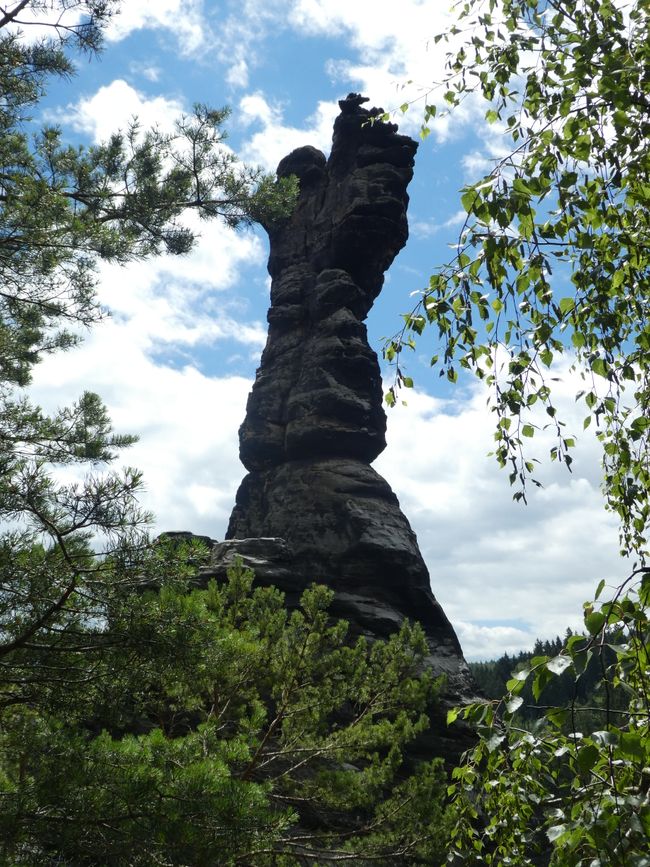
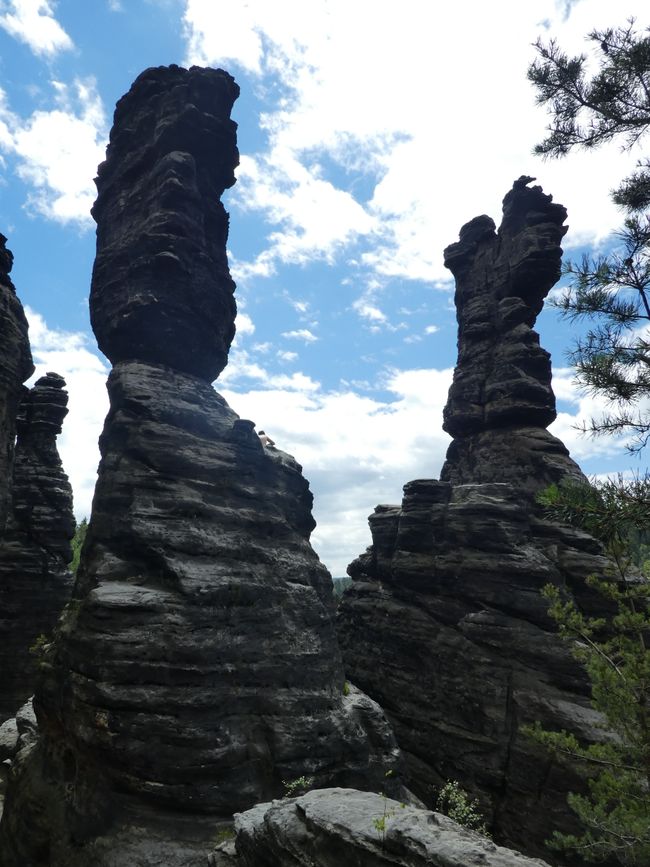
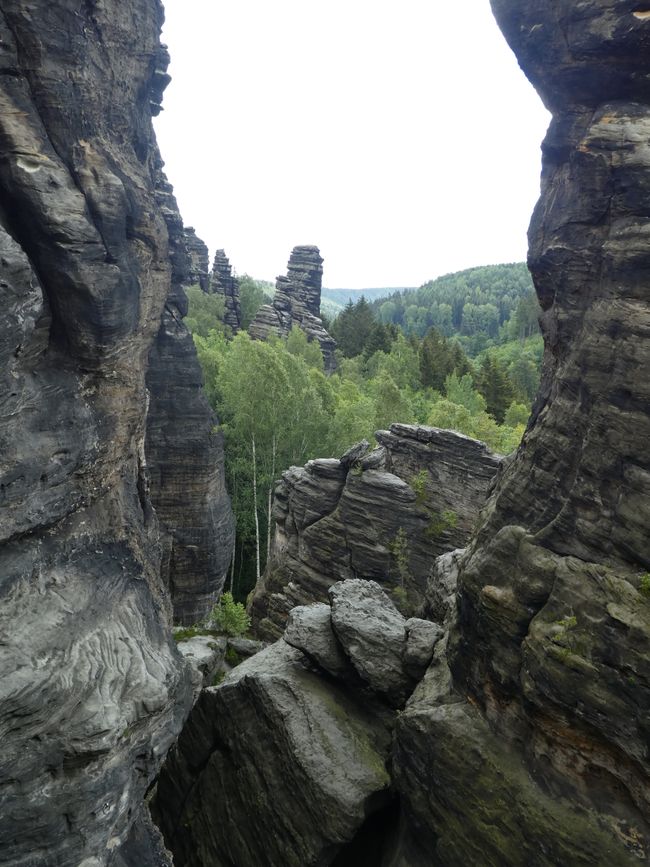
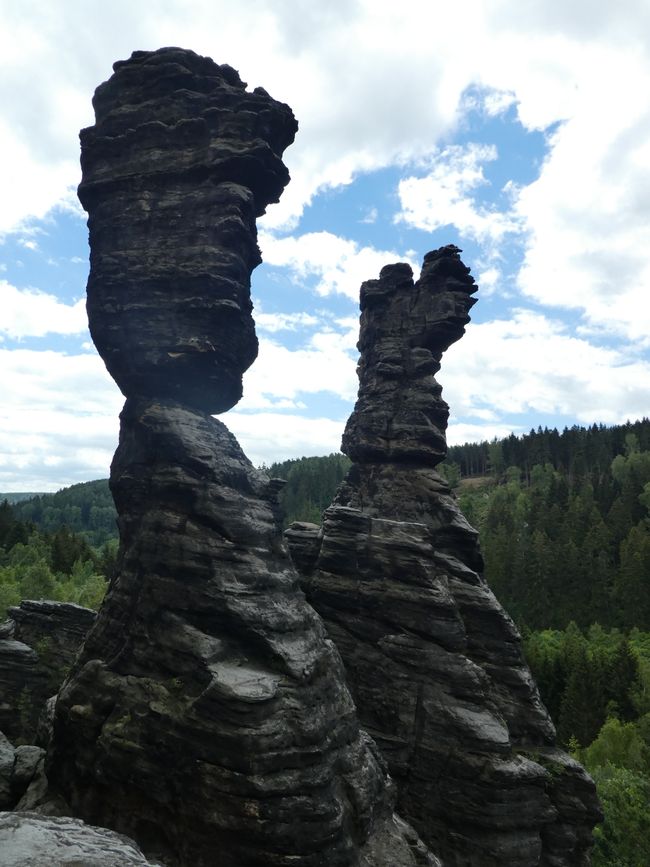
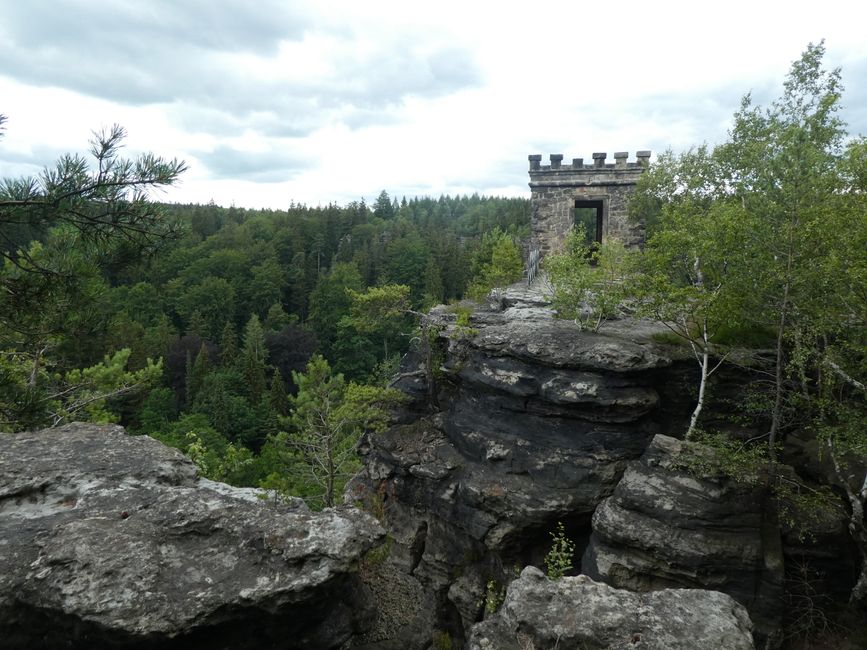
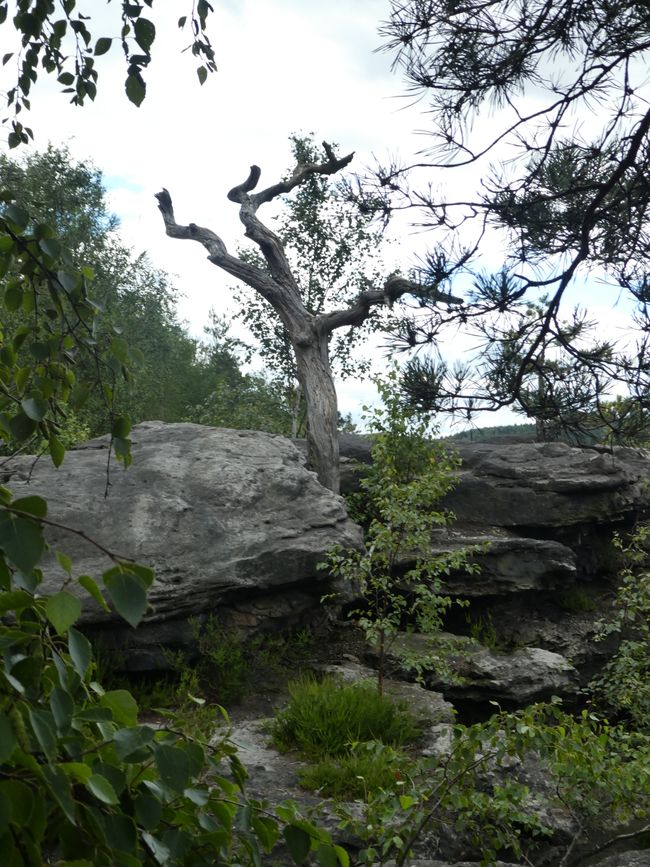
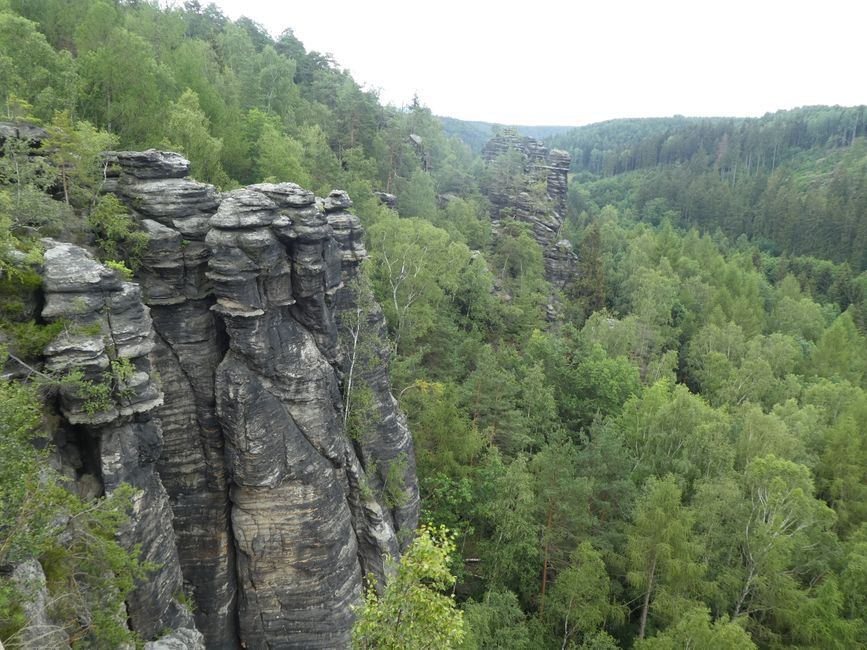
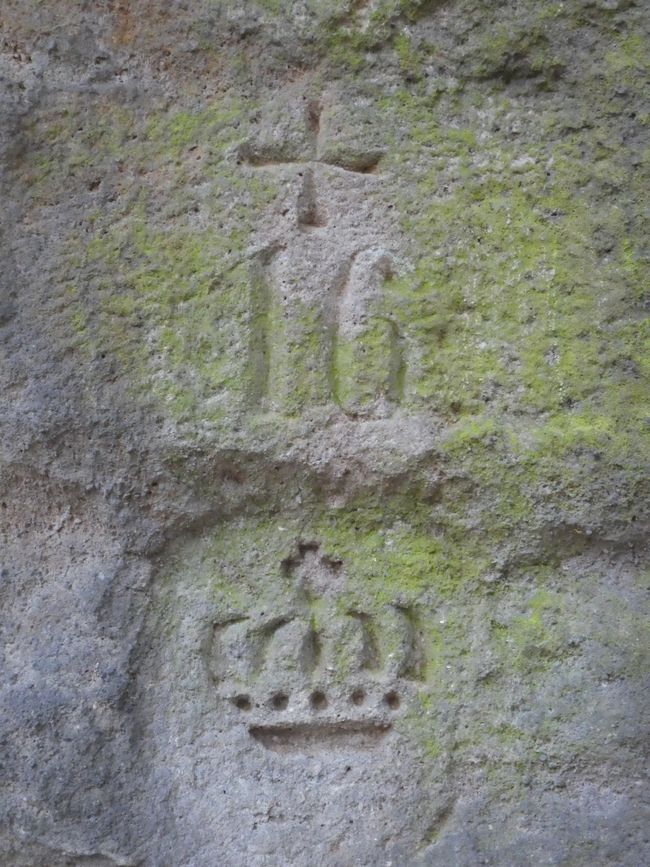
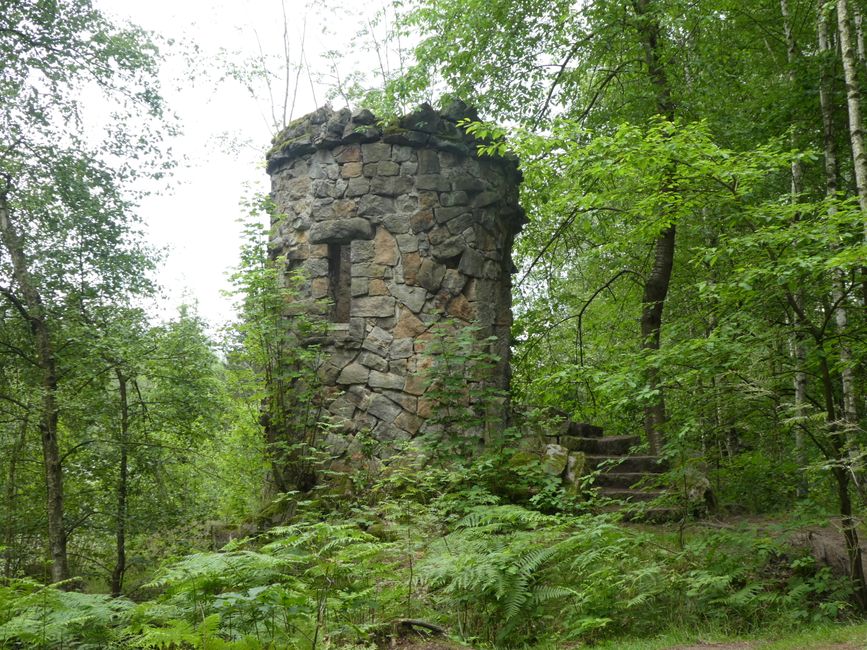
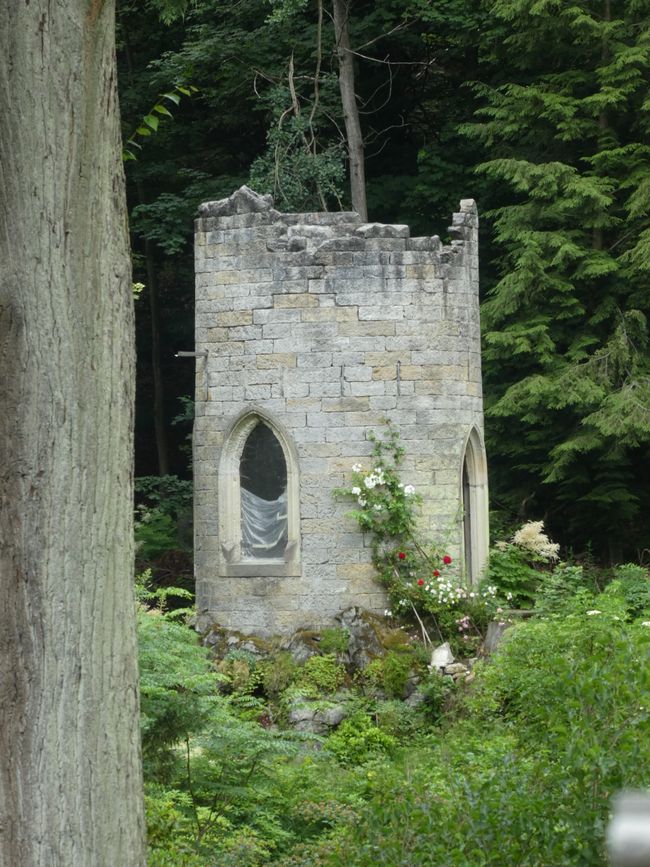
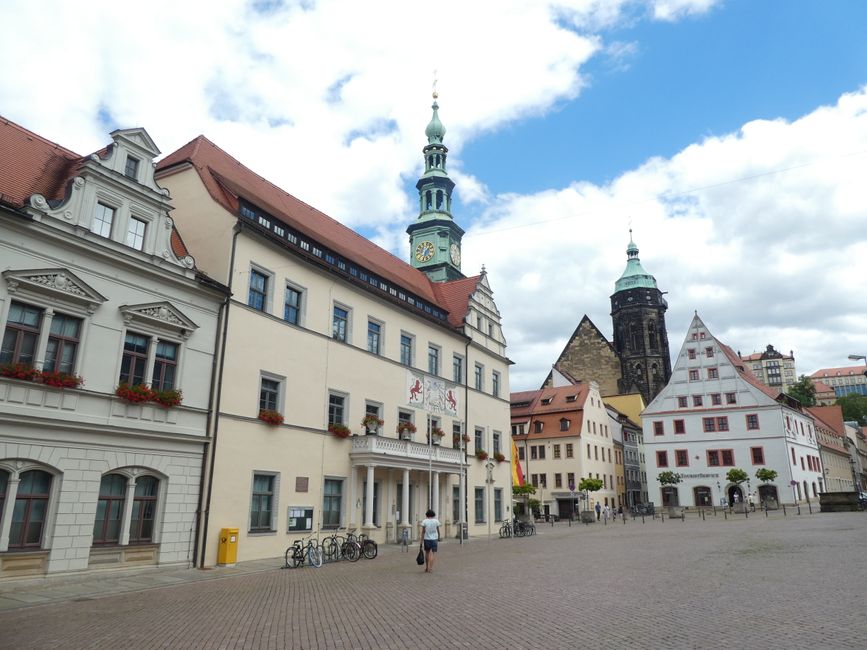
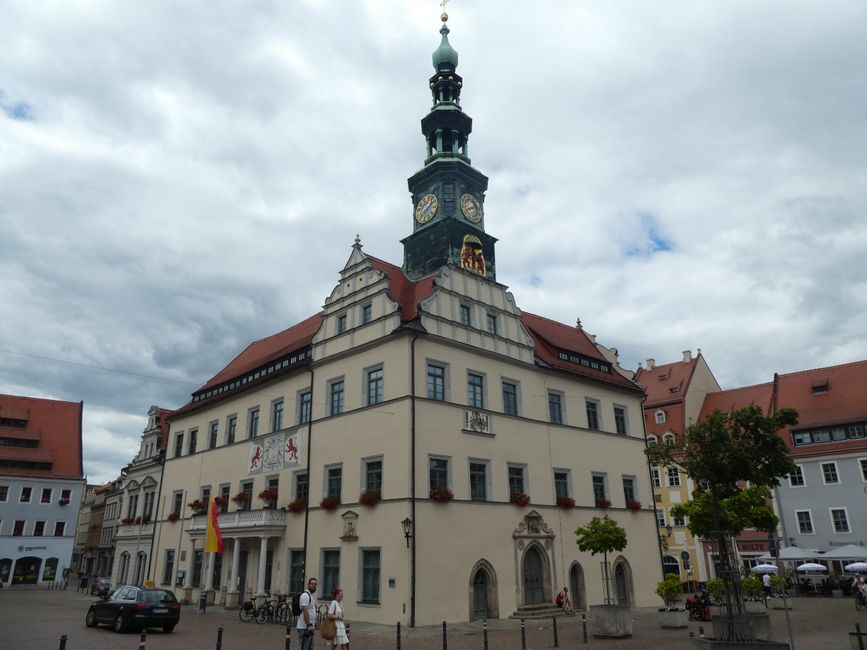
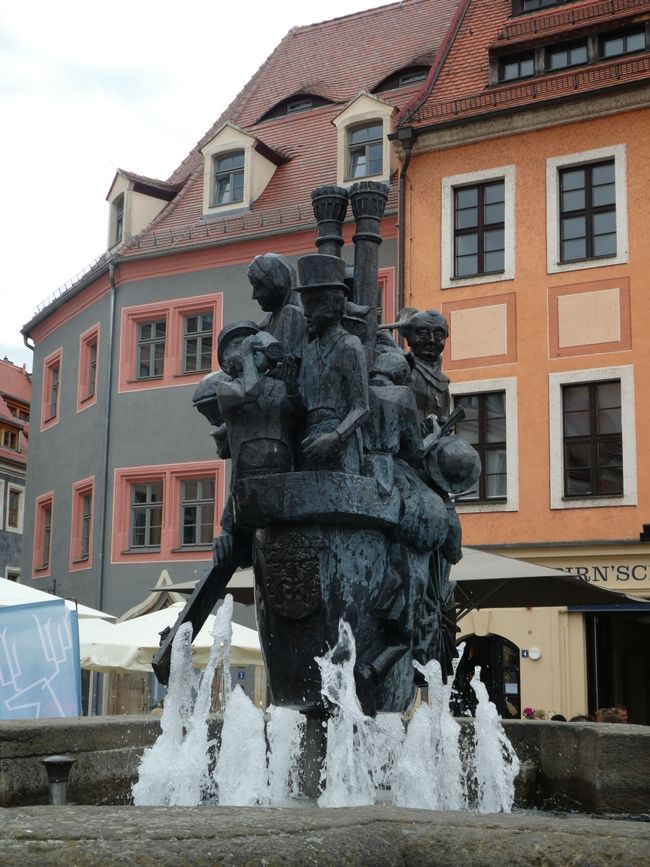
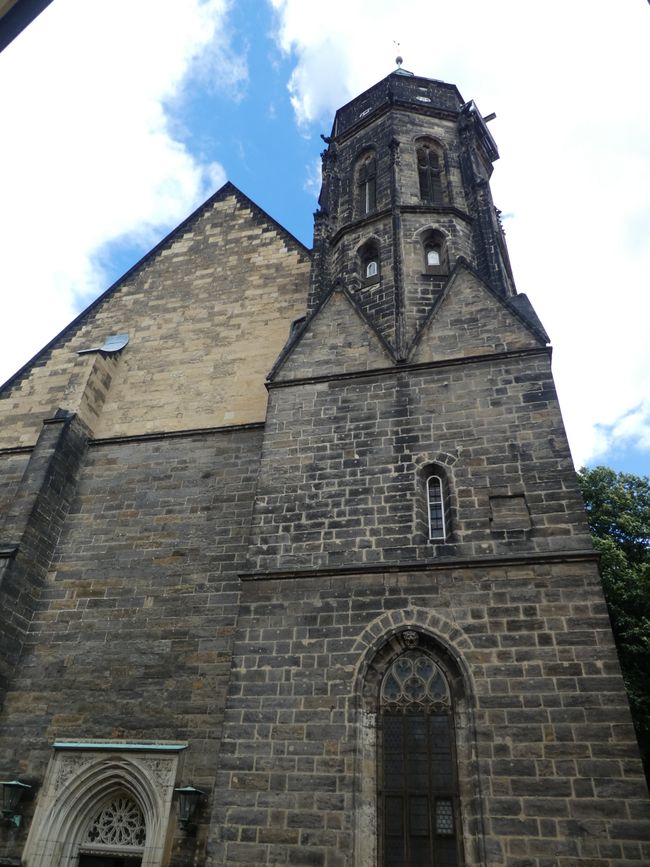
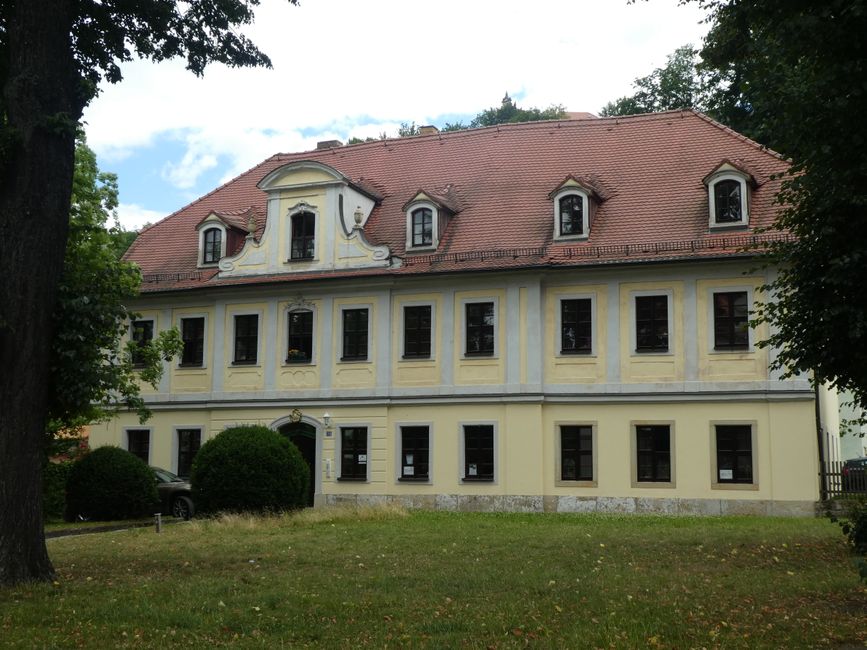
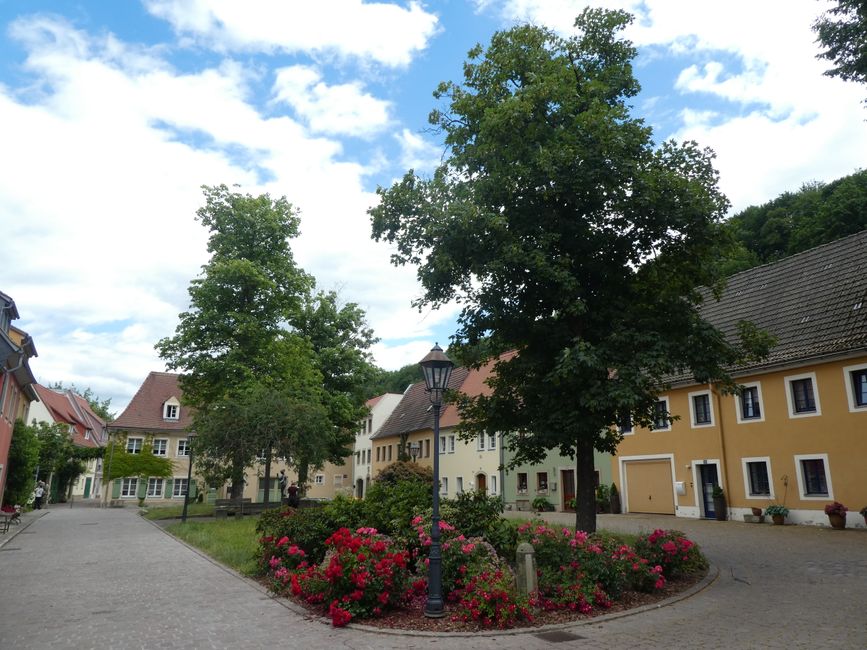
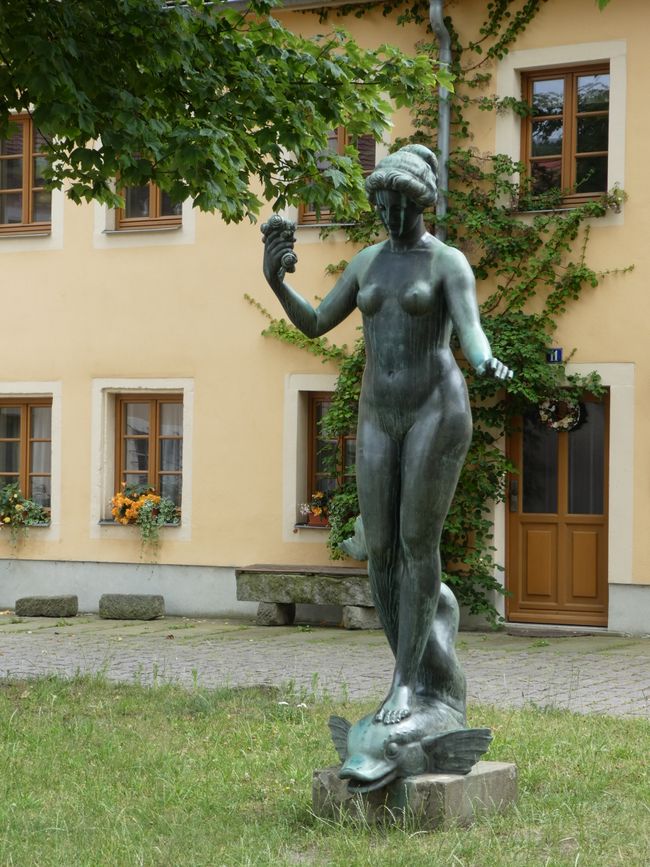
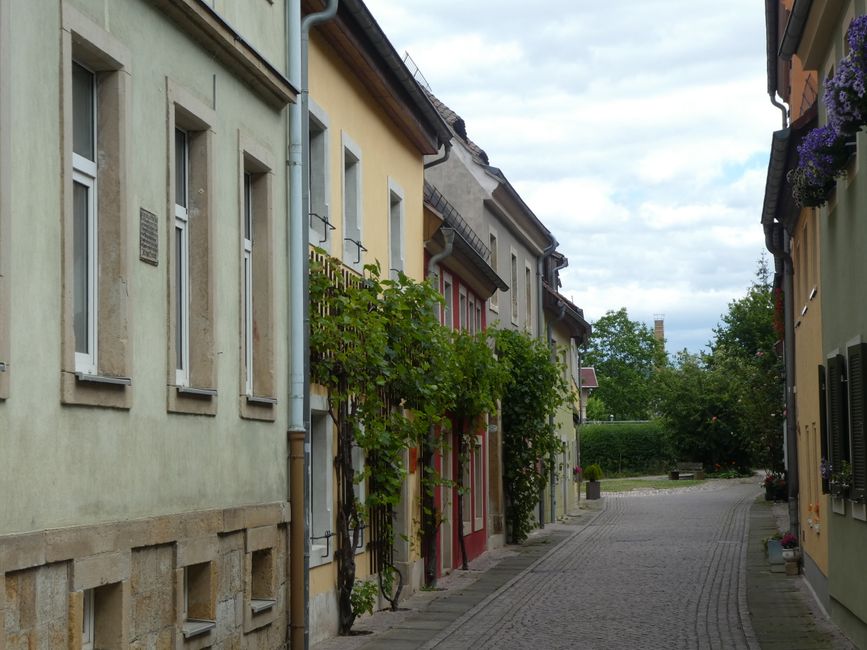
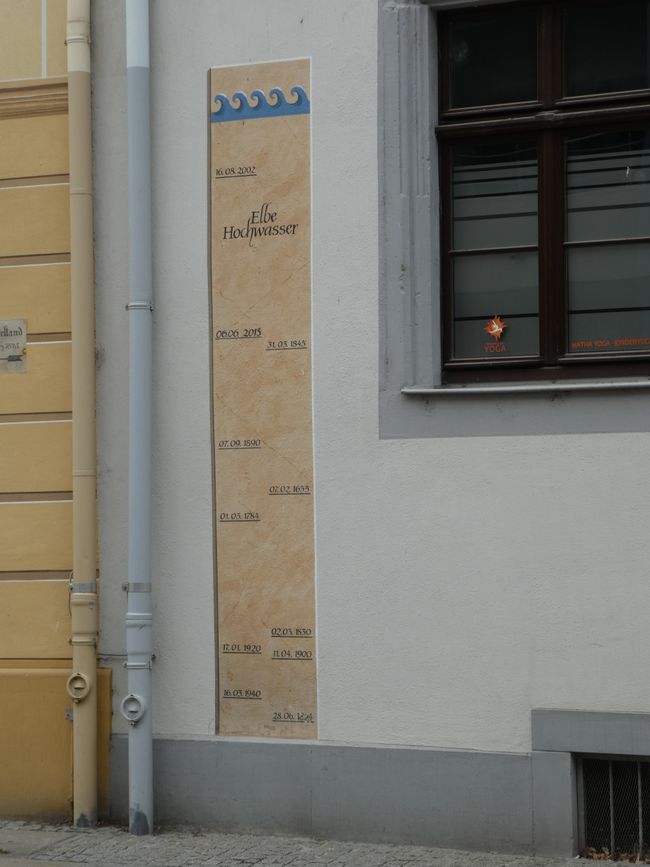
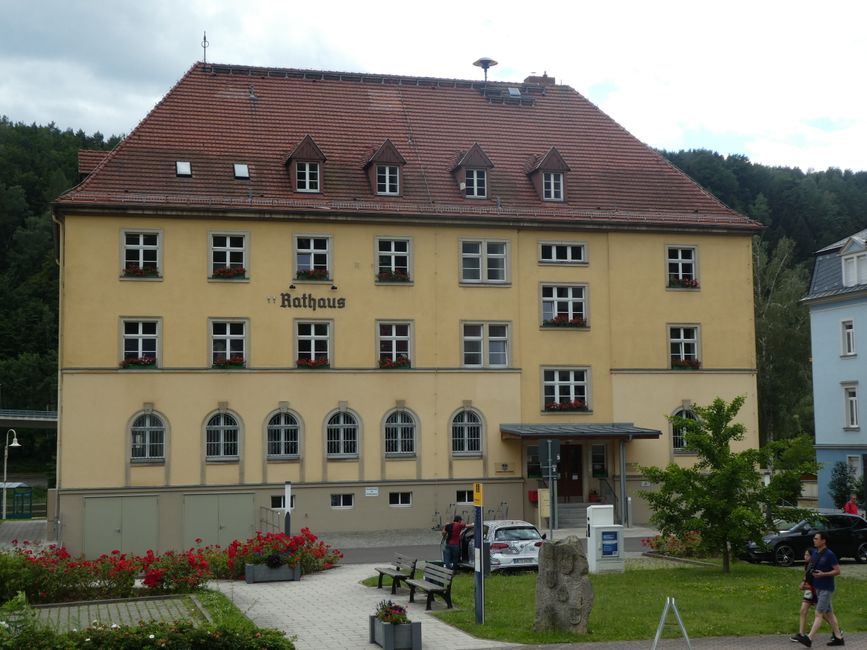
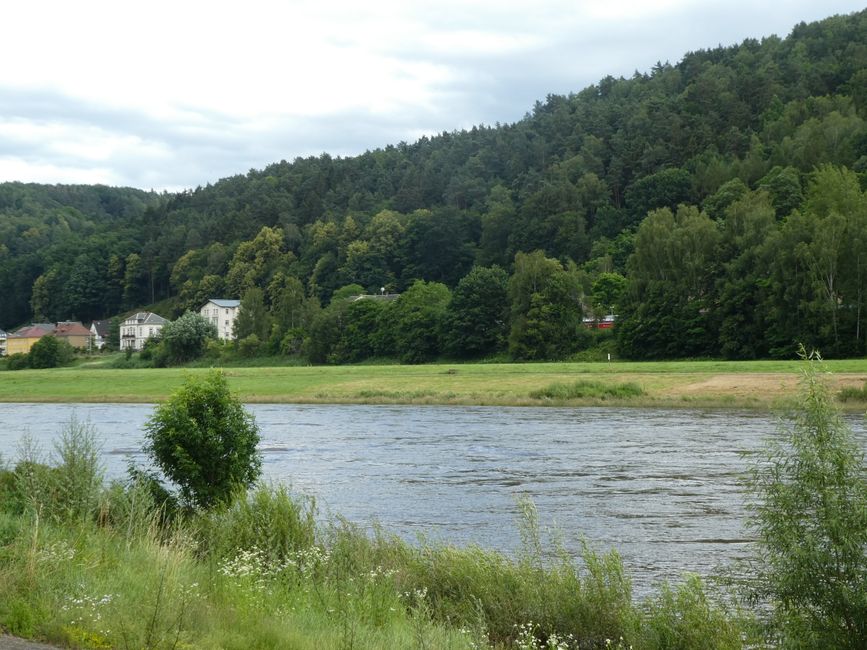
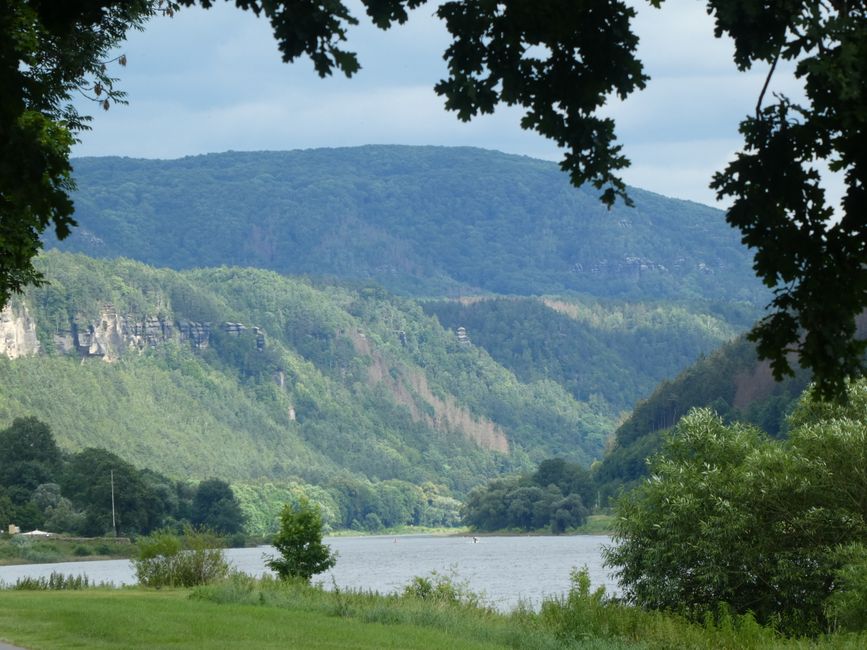
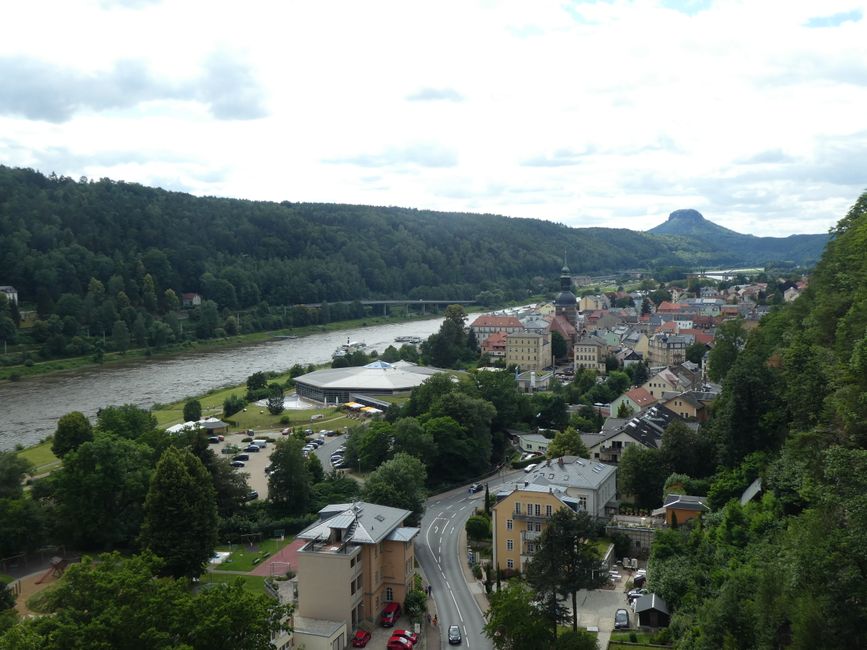
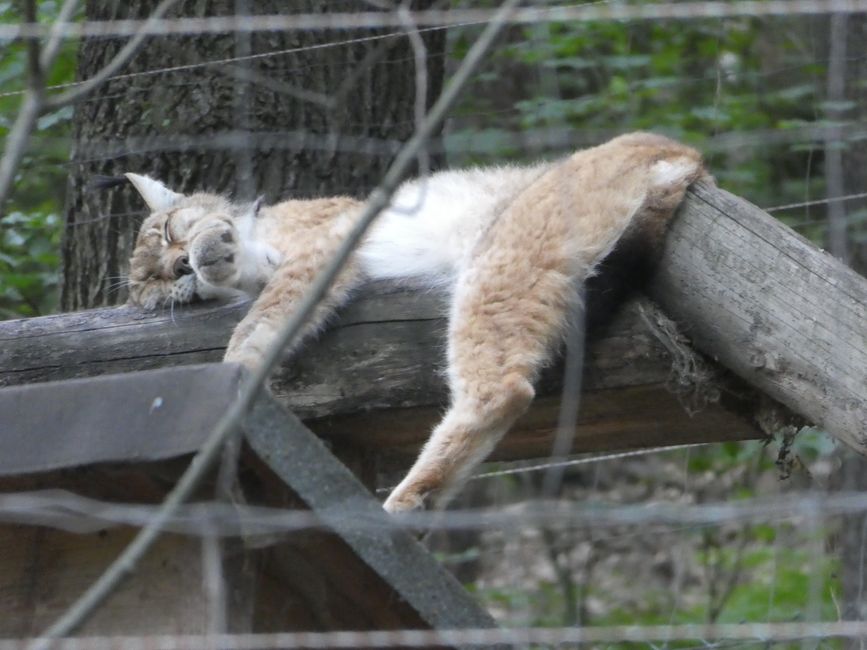
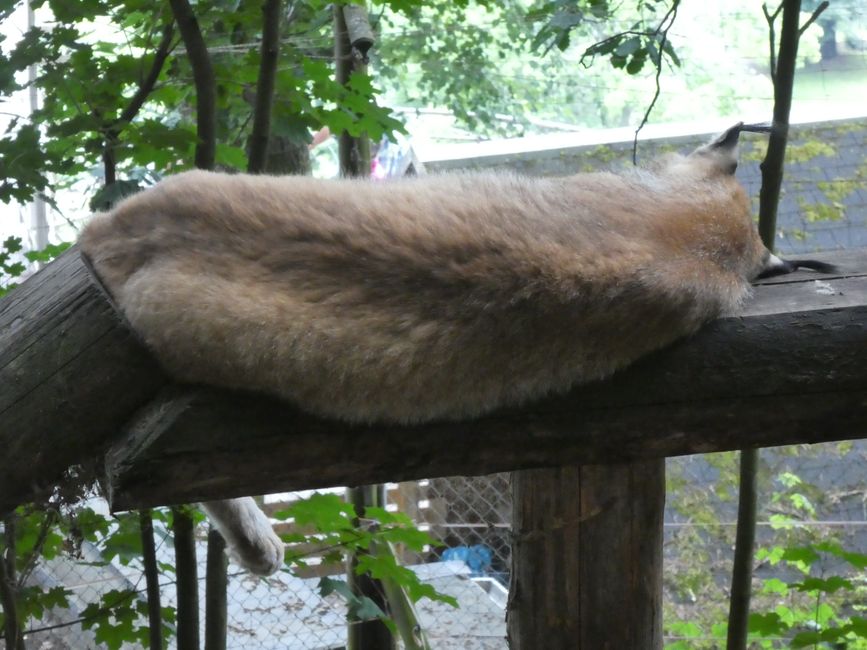
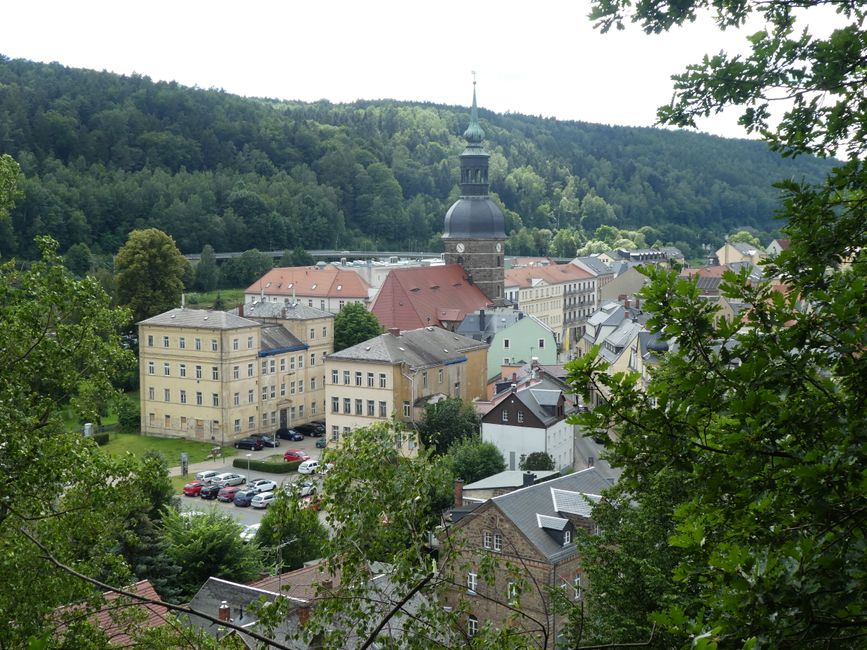
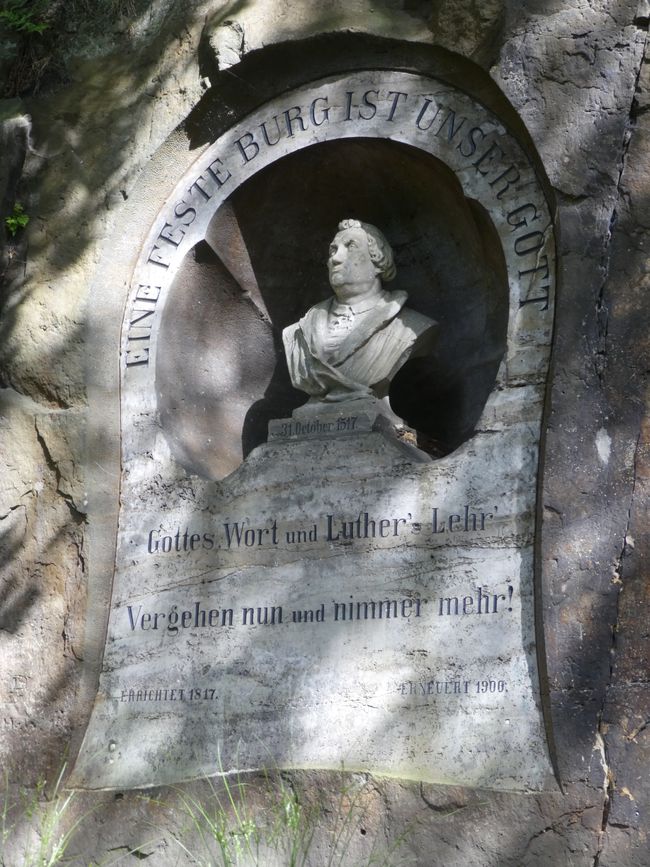
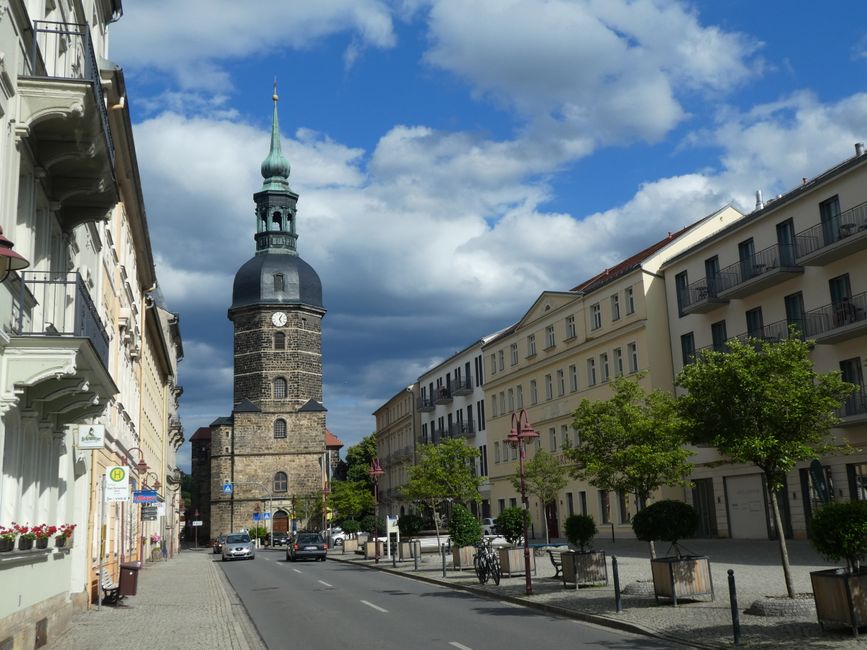
Naročite se na glasilo
We started the day with a trip to Bielatal. There are numerous bizarre rock towers and needles there. We decided on a three-hour circular hike from the Schweizermühle parking lot.
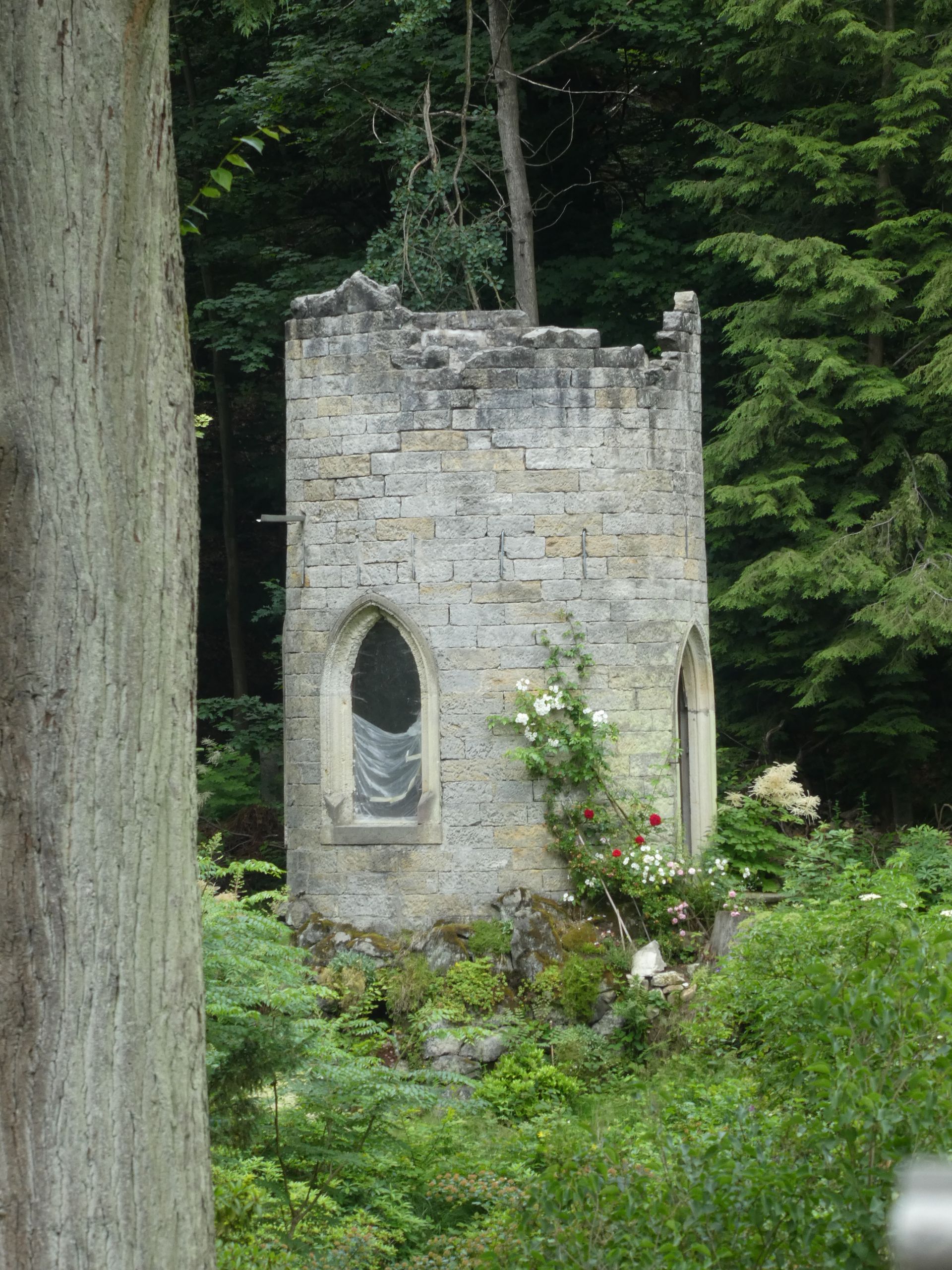
We were supposed to follow the hiking trail marked with a 'Yellow Dot', which we also found at the start of the hike above the parking lot with the help of our map. However, at the first junction, there was no more marking, and we had to guess with the map.
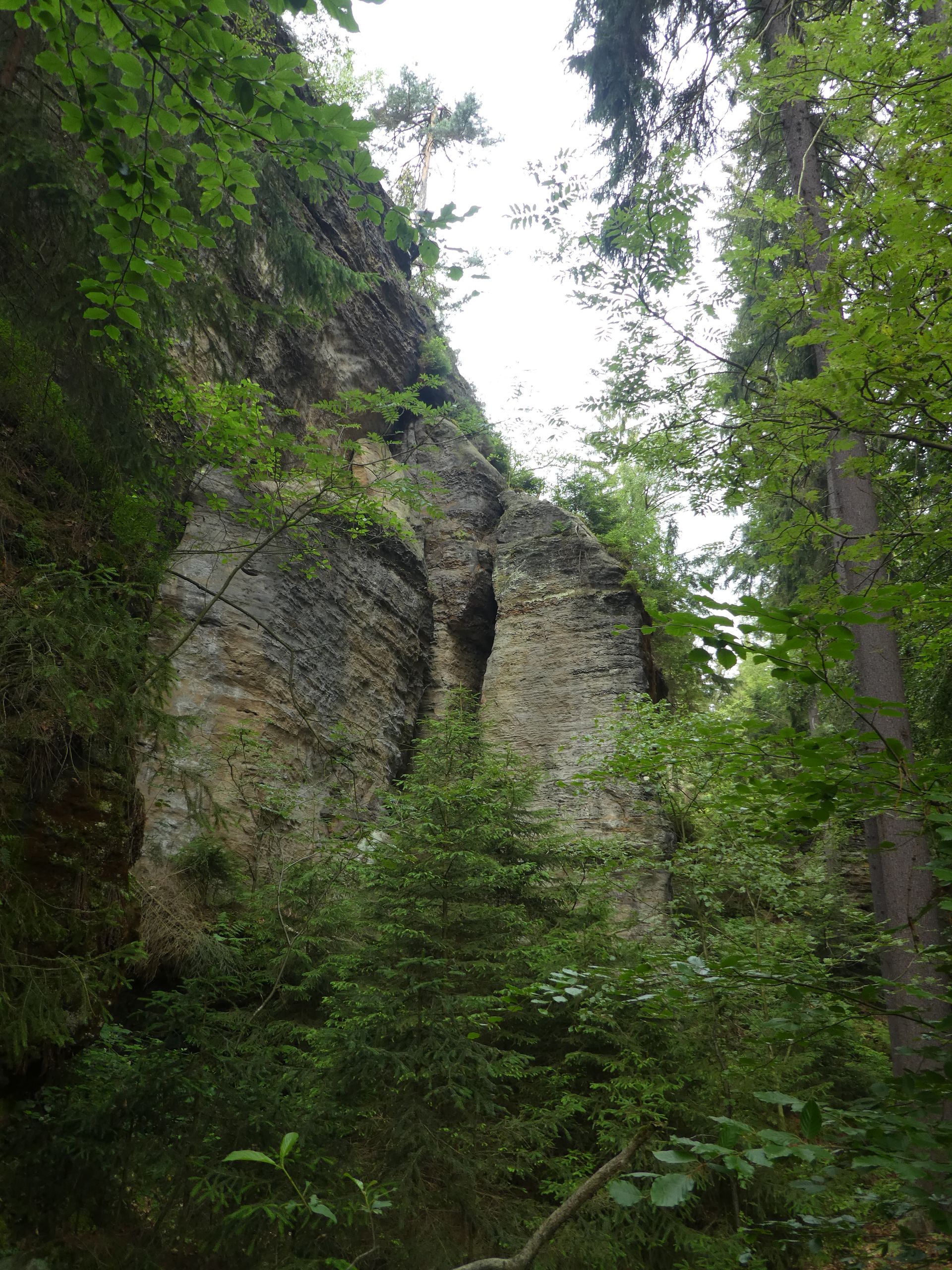
At the next junctions, we noticed that not all paths were marked on our hiking map, and we had taken the wrong path. However, we eventually found our way back to our selected hiking trail.

First, we reached the Nachbarstein, from where we could enjoy the view of Bielatal for the first time.

Next, we went to the Sachsenstein, a high rock formation with an observation platform on top.
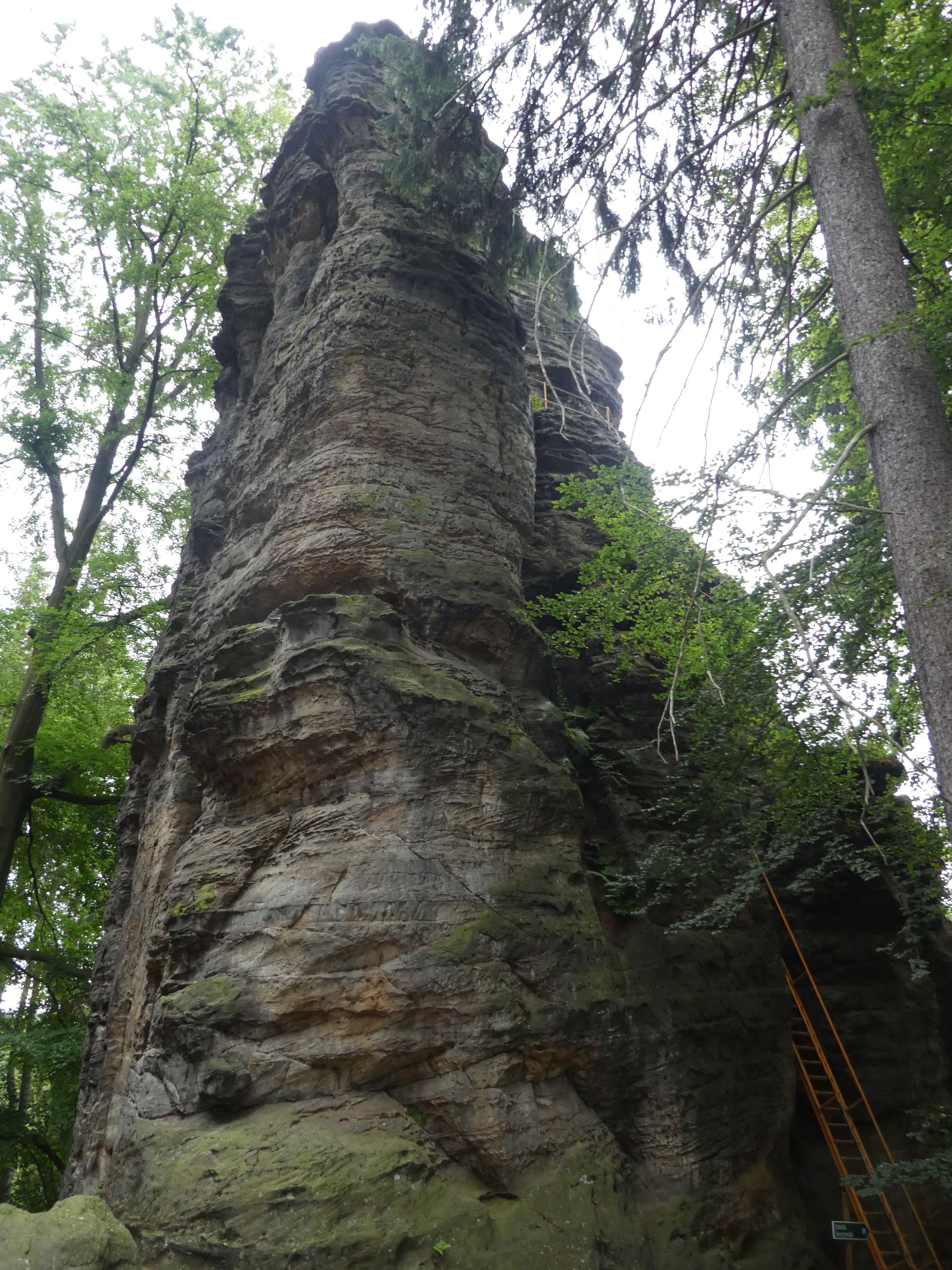
You can climb the Sachsenstein using iron ladders. However, the passages in the rock were sometimes so narrow that we got stuck with our backpack. So we had to leave the larger backpack on the intermediate level to get to the top.
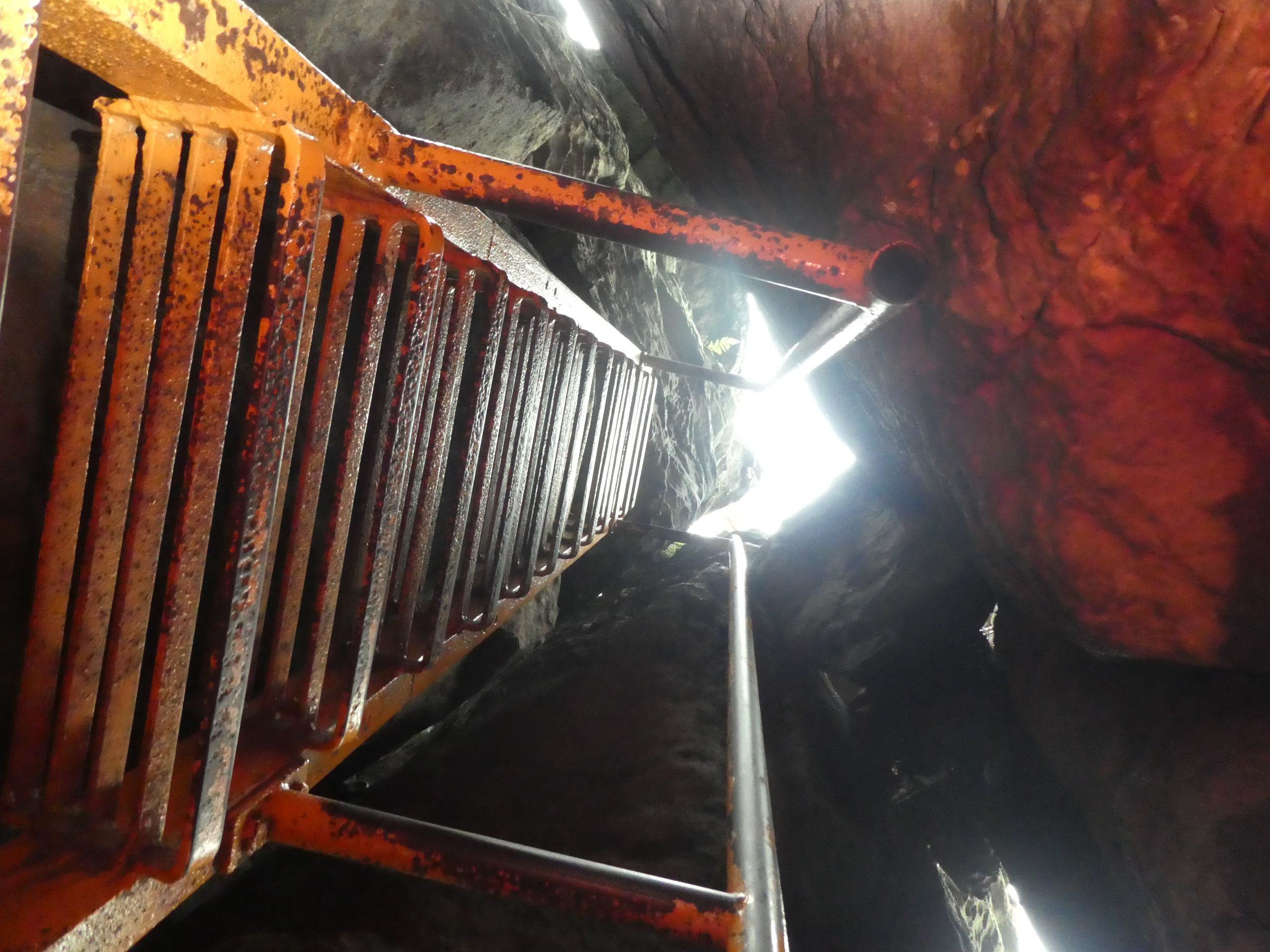
The ascent was a bit adventurous as we occasionally had to change the ladder. Fortunately, there was usually a handrail, even if the iron was partially rusted...

Once we reached the top, we had a beautiful view of the surroundings.
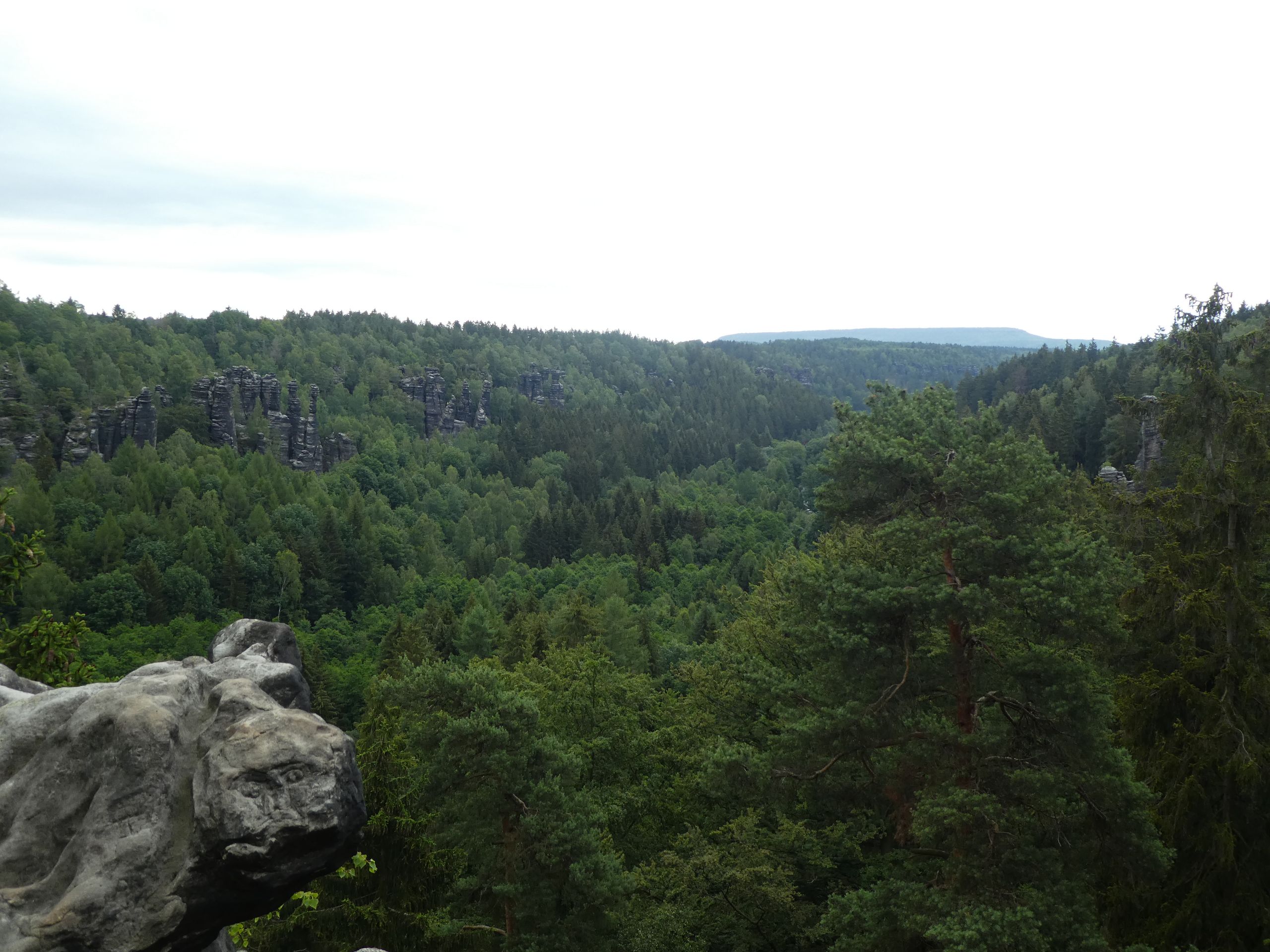
Unfortunately, we had to take the same way back down. At least, we didn't encounter any oncoming traffic...

The next viewpoint we headed to was Johanniswacht. When we arrived there, many children and adults were already there. Today, there seemed to be climbing lessons for children taking place, where they climbed larger or smaller rock walls depending on their age.

From the viewpoint, we also saw some adult climbers ascending the high rock formations. Bielatal is one of the most popular climbing areas in the region with more than 1100 climbing rocks.
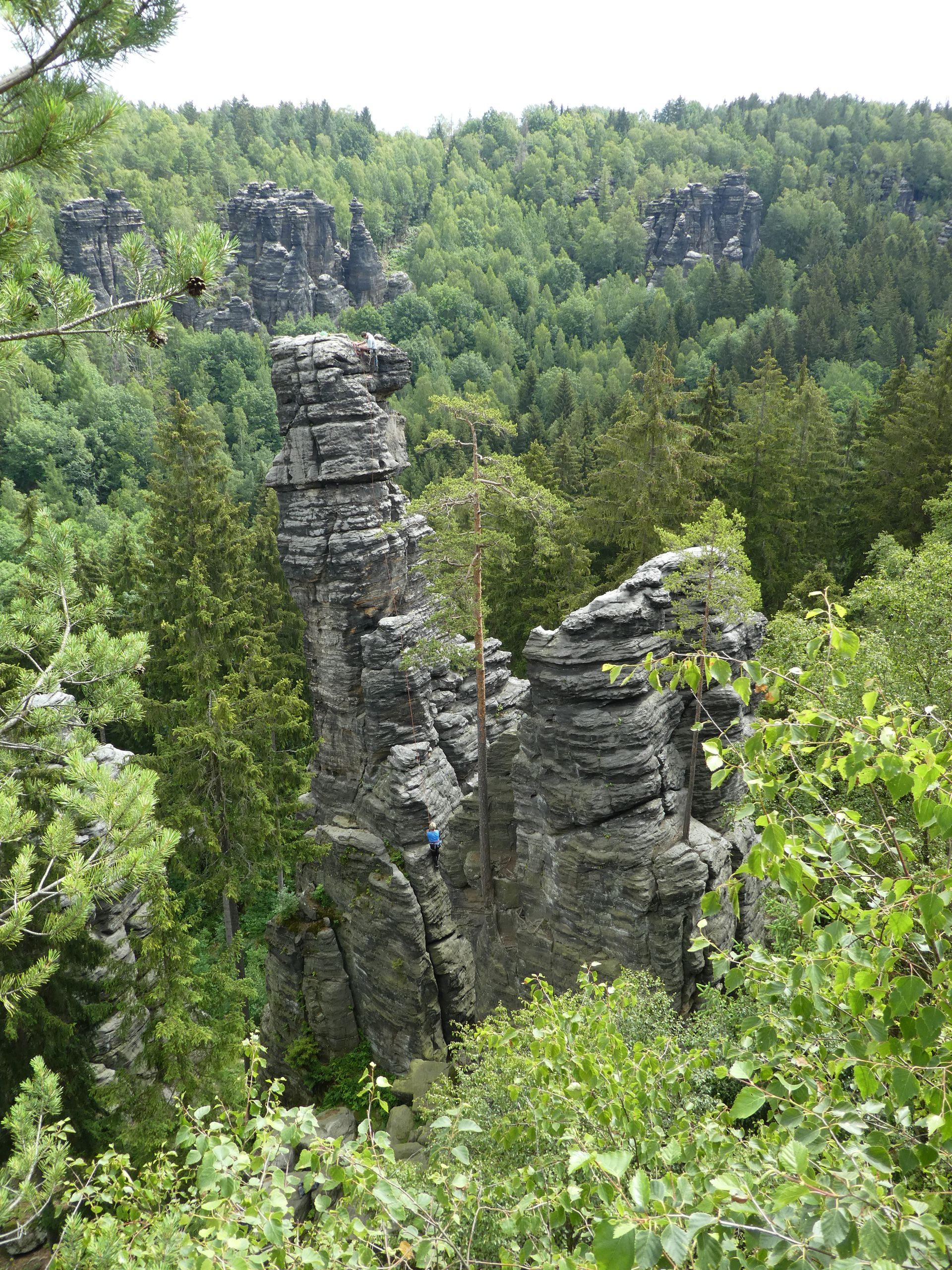
We were satisfied with the view from the easily accessible viewpoint and continued our way down to the former Ottomühle in the valley.
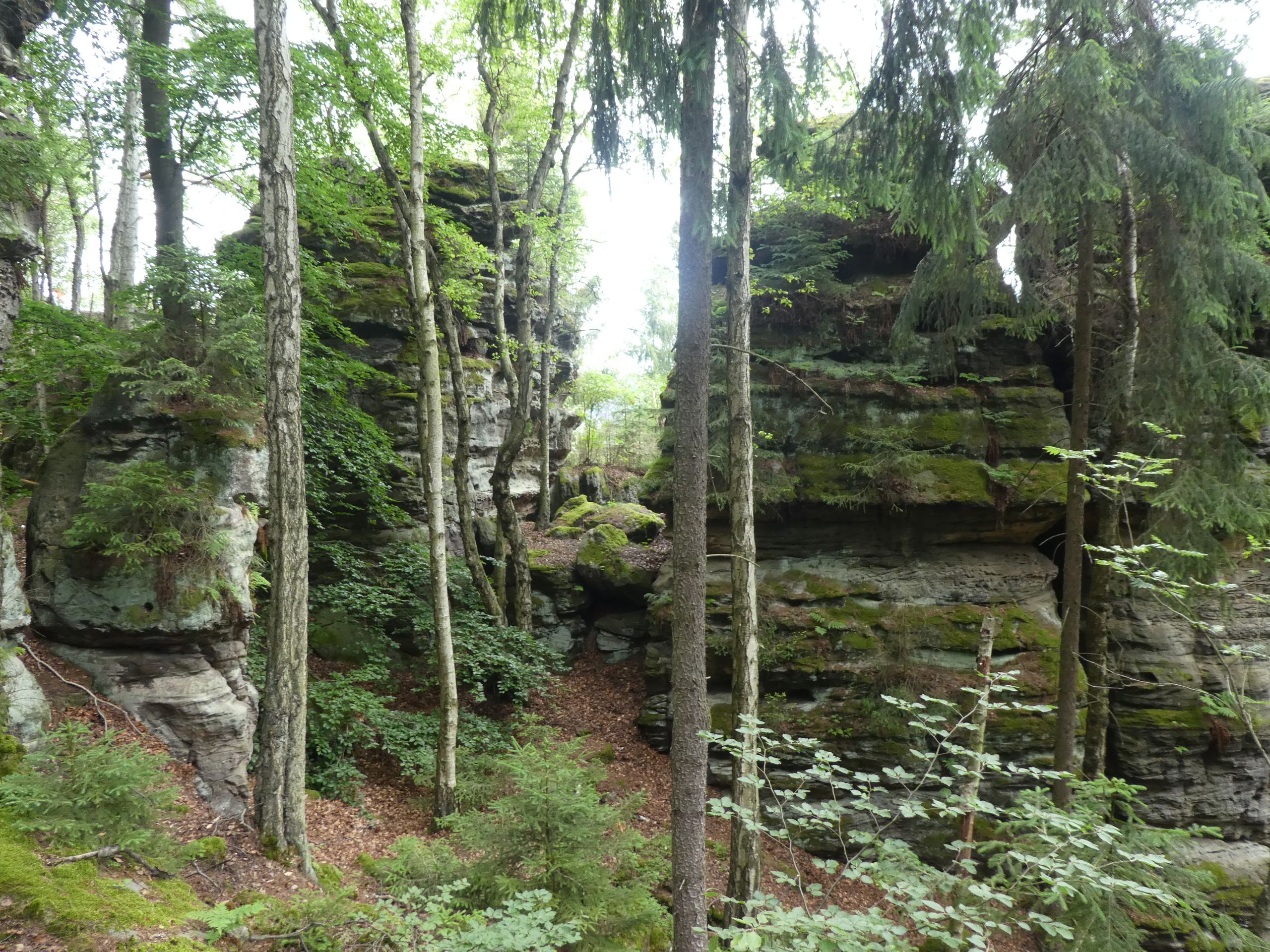
After a short break in the restaurant there, we crossed the Biela river on the other side and went back uphill.

At first, our path didn't offer any spectacular views, although we passed by some beautiful rock formations.

A beautiful viewpoint was also quite crowded: A group of men and children were gathered there, playing with remote-controlled cars. These cars were quite large and could even drive on rocky terrains. When a car wasn't being operated, people talked extensively about it...

But the most interesting formation was the so-called 'Herkulessäulen' (Hercules columns), which we finally reached.

Although they appear rather fragile, they are solid enough for climbers to climb them.
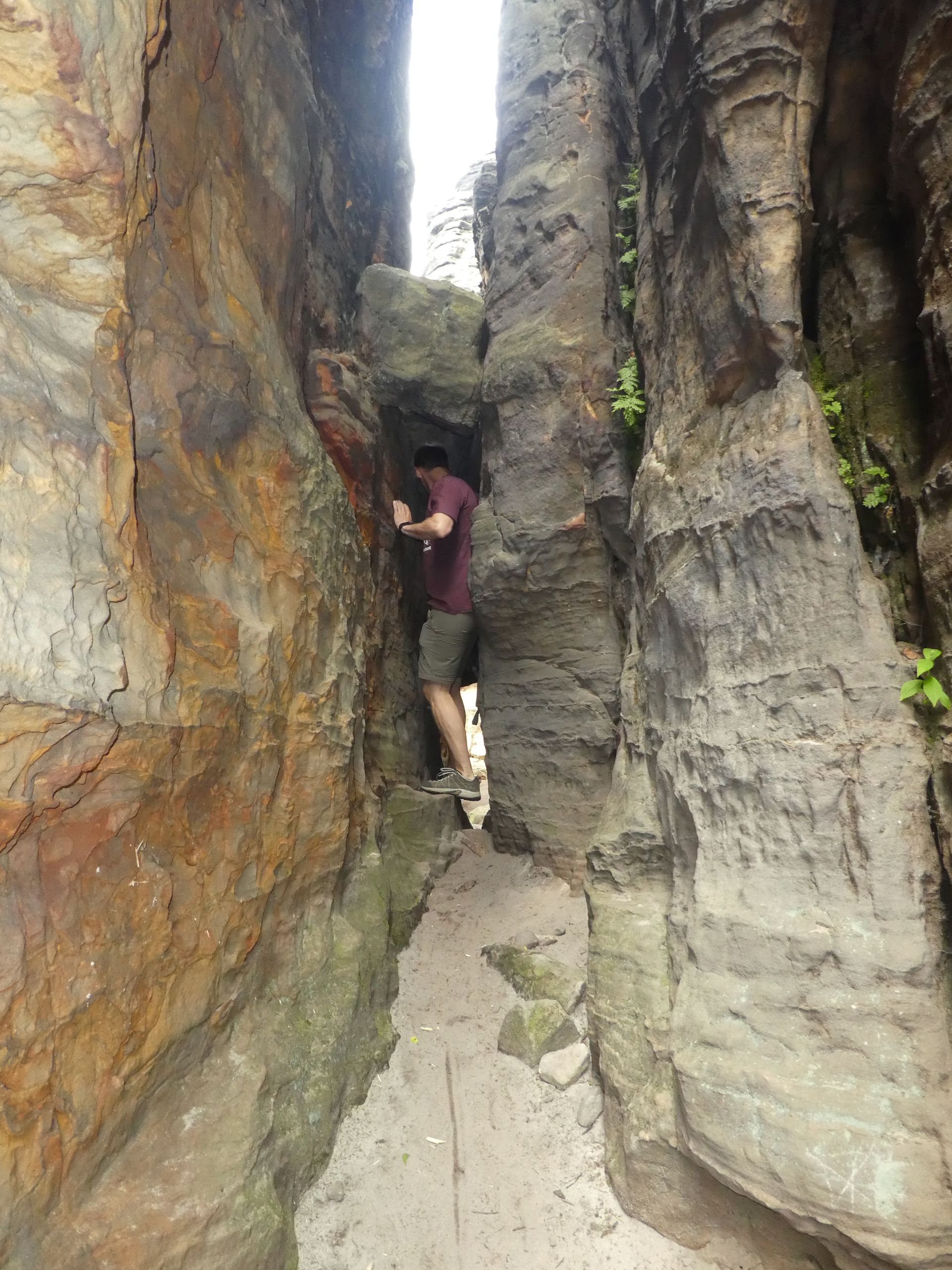
The path to the columns was narrow and rough. But eventually, we were able to enjoy our packed lunch with a view of these rocks and the surrounding valley landscape.
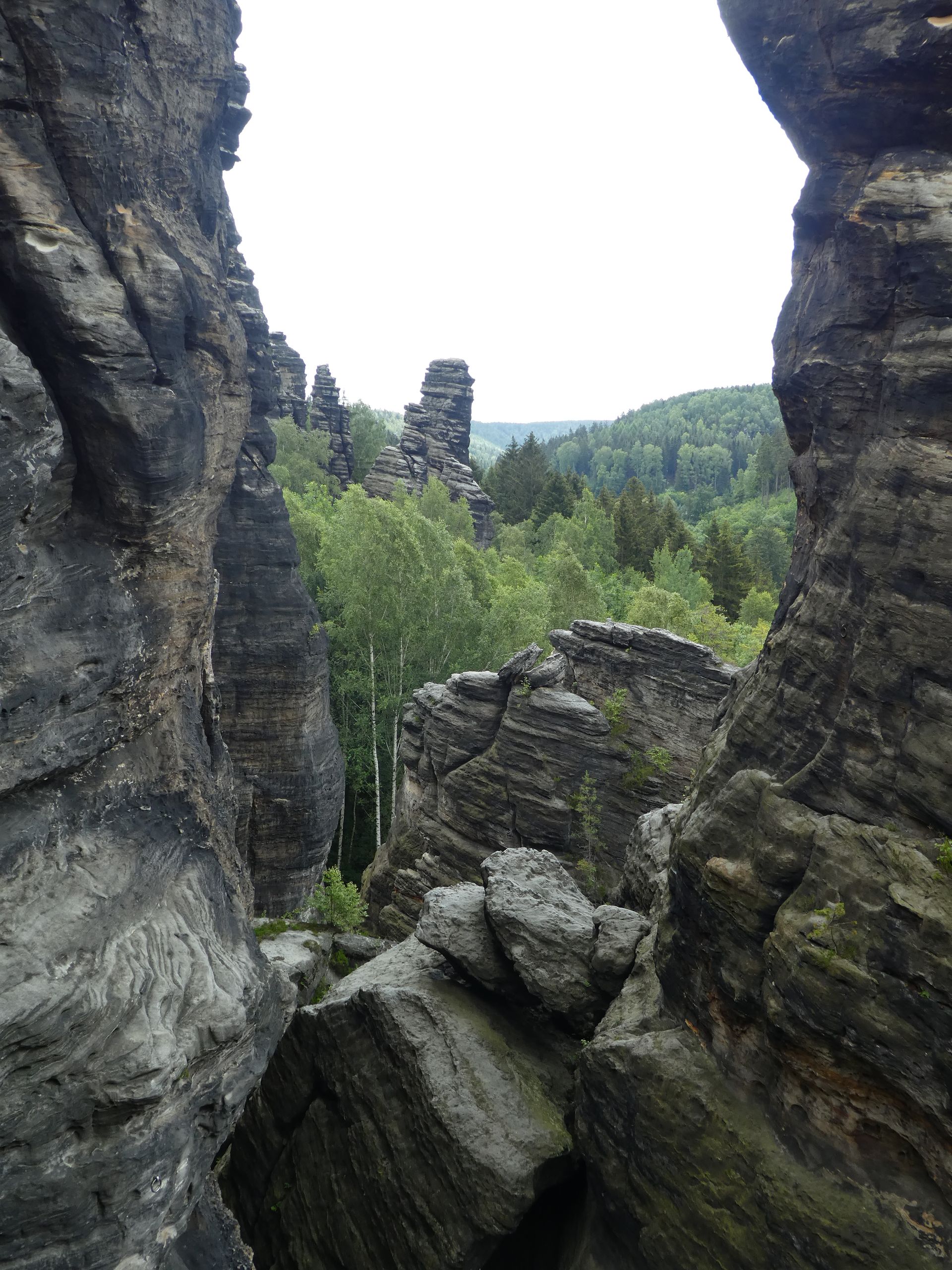
A bit further, we reached the viewpoint Bielablick, also known as 'Kaiser-Wilhelm-Feste'.
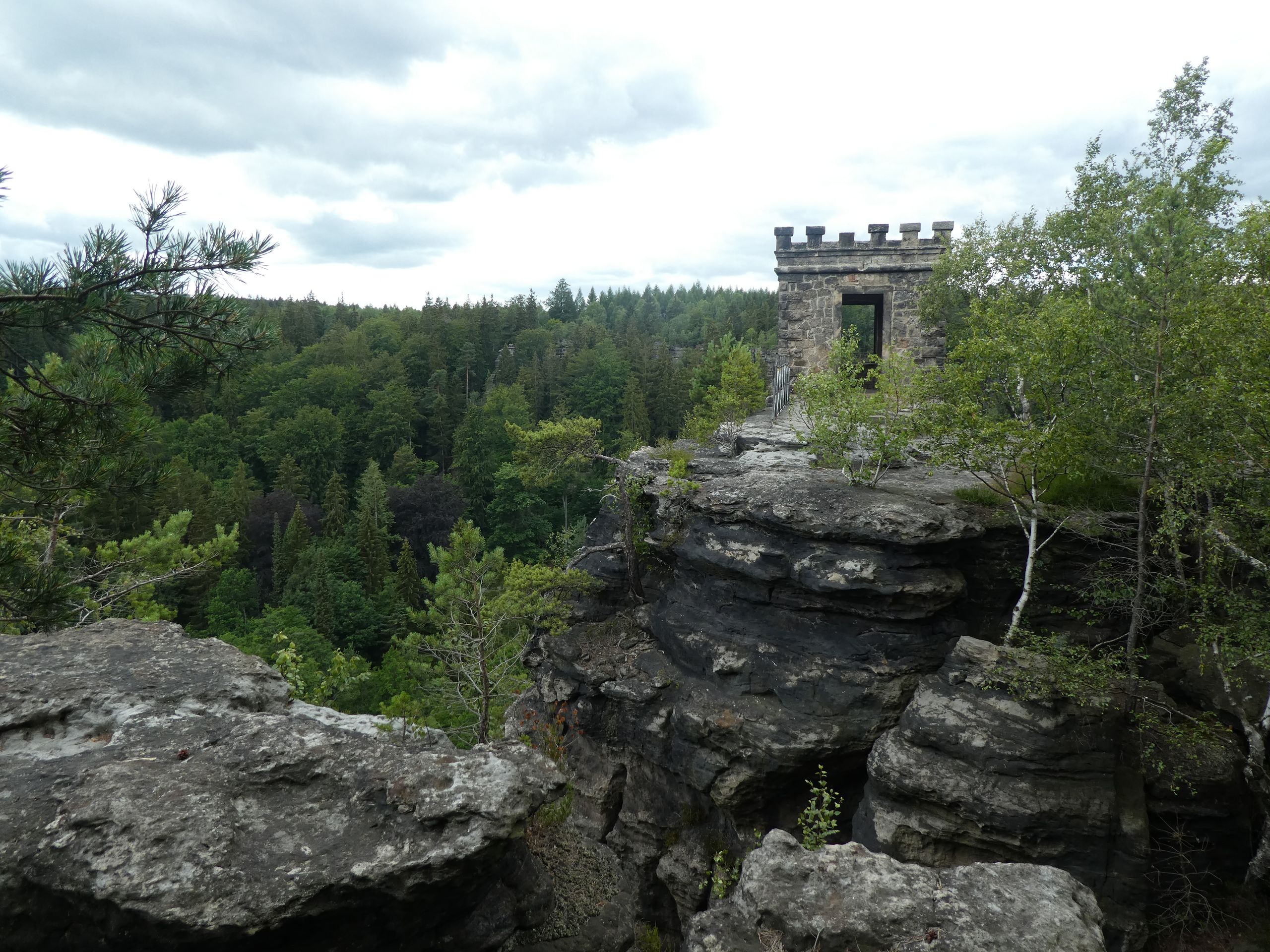
However, this picturesque tower doesn't resemble a real fortress: it is an artificial bastion built in 1880. The idea for its construction supposedly originated from a beer-fueled tavern discussion...
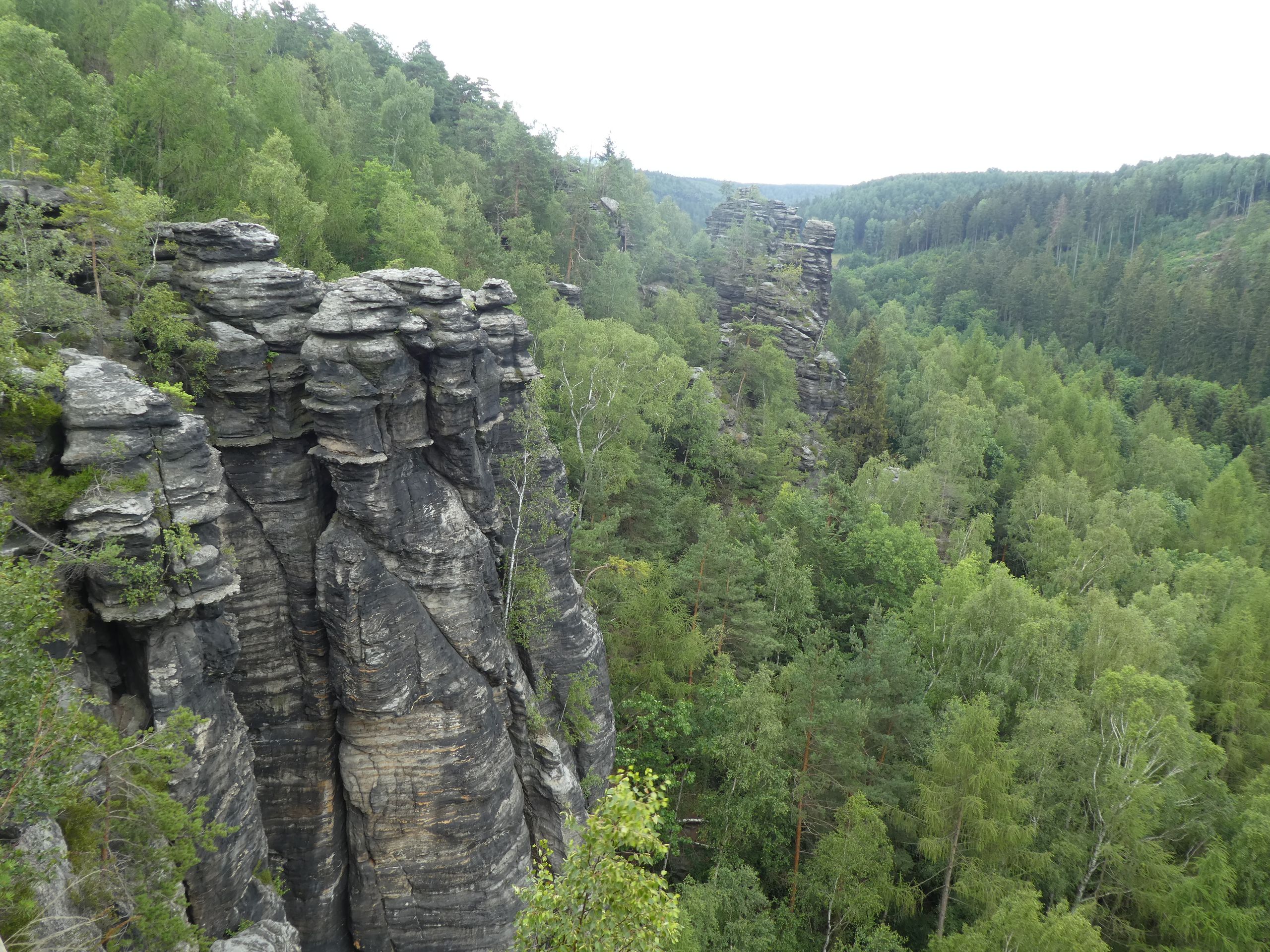
We were already approaching the starting point of our hike again. Besides several smaller viewpoints, just before descending, we saw a small tower that stood decoratively by the wayside.
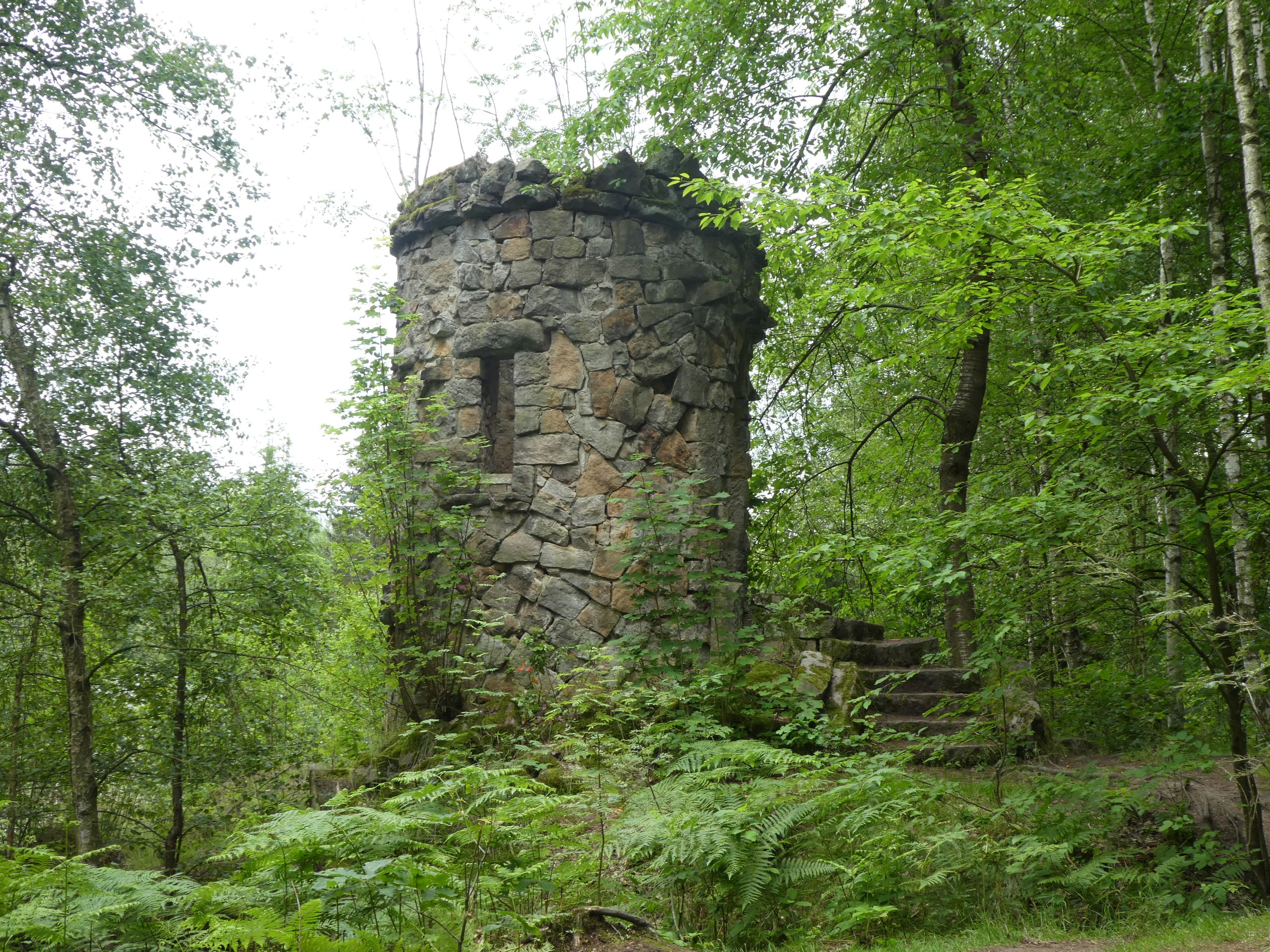
As a change from hiking, we then drove to Pirna, which the travel guide referred to as the 'little sister of Dresden' with an 'Italian piazza atmosphere'.
We might not describe it exactly like that, but the market square with the city hall did indeed offer a very picturesque view.
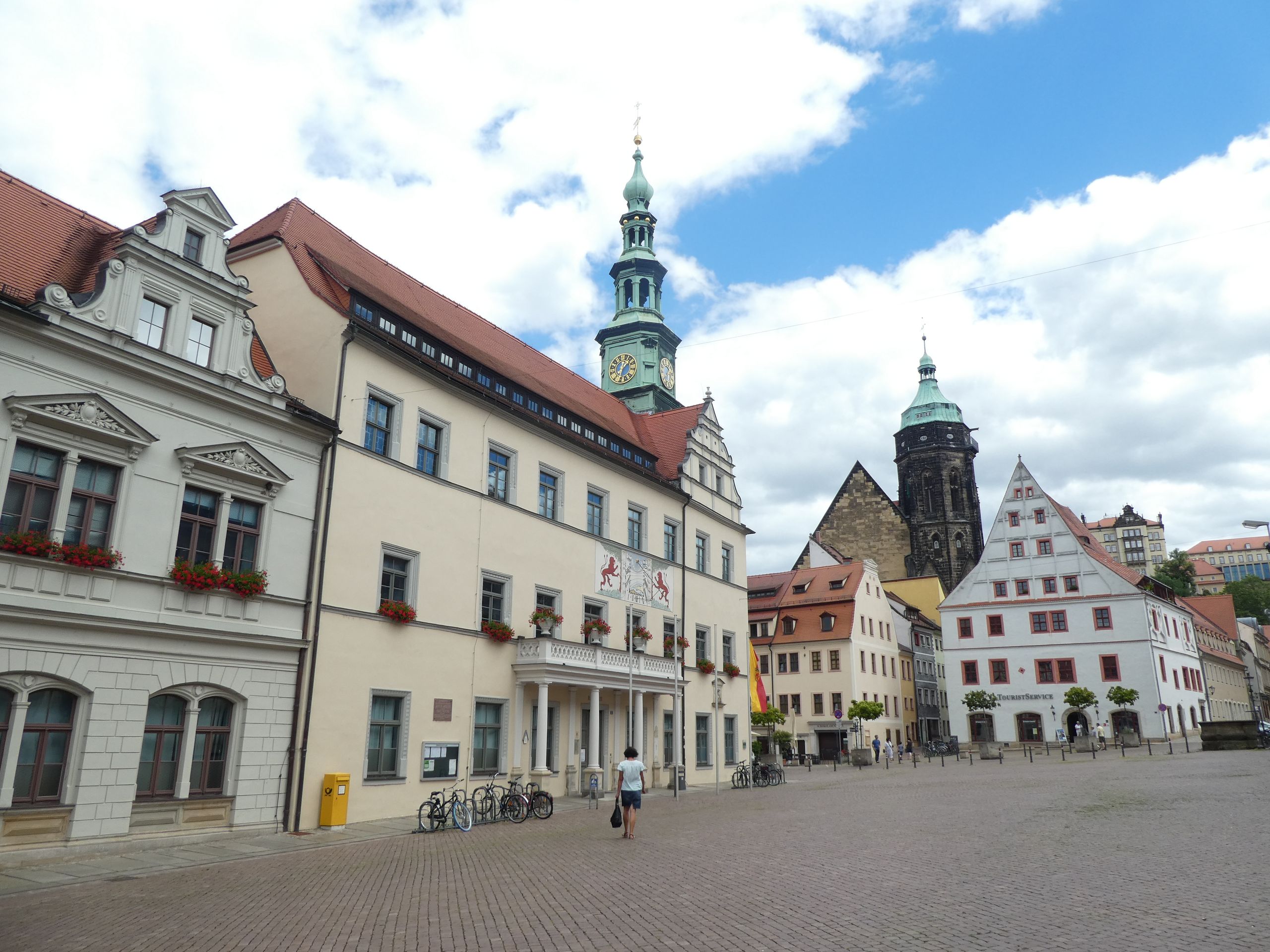
We also visited the St. Marien church from the 16th century, whose interior with delicate paintings on the vault provided a beautiful sight.
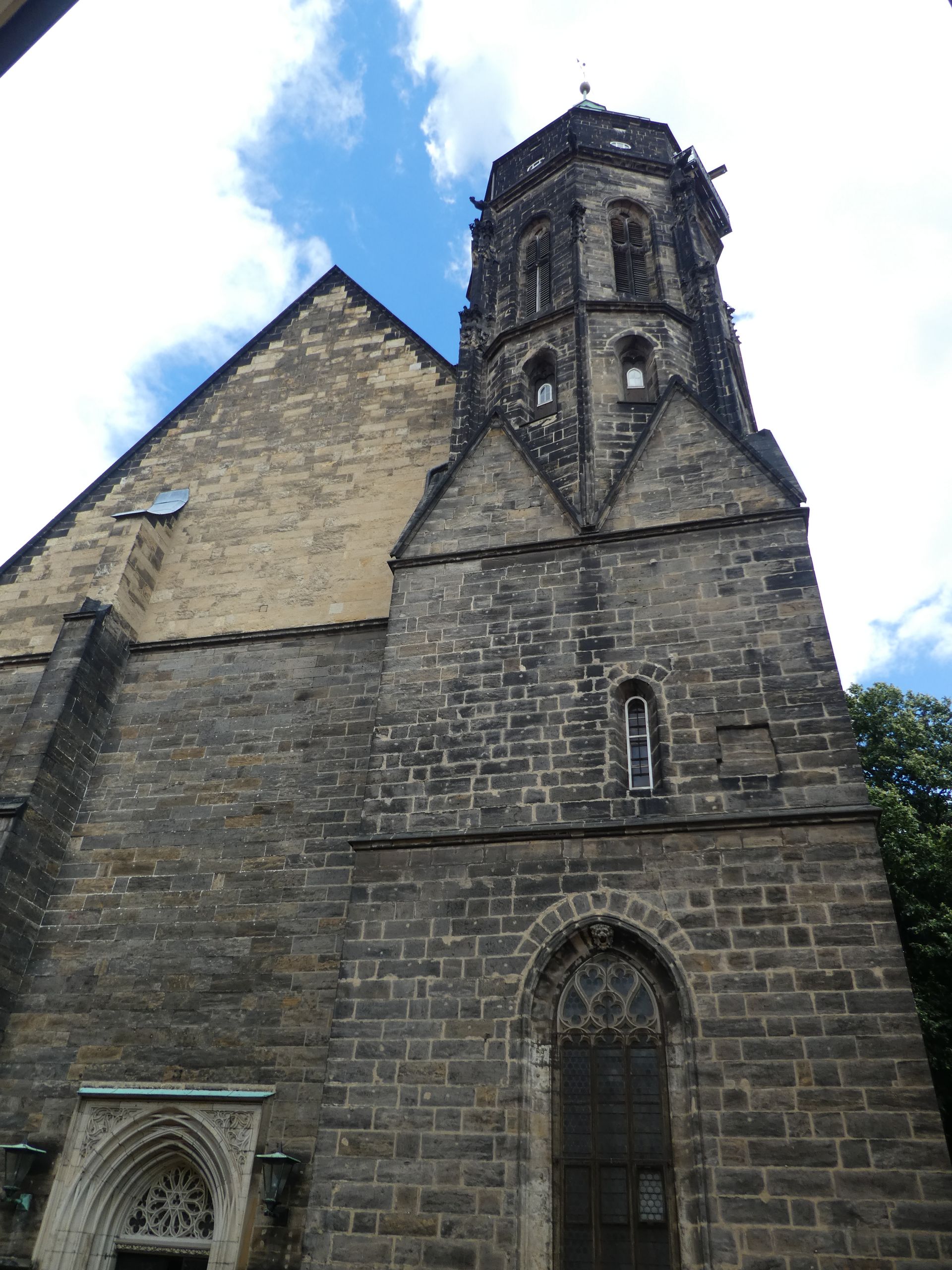
We made a short detour to the Schifftorvorstadt. In the past, this neighborhood was home to sailors, stonemasons, fishermen, raftsmen, and boat pullers, living in slightly smaller houses.
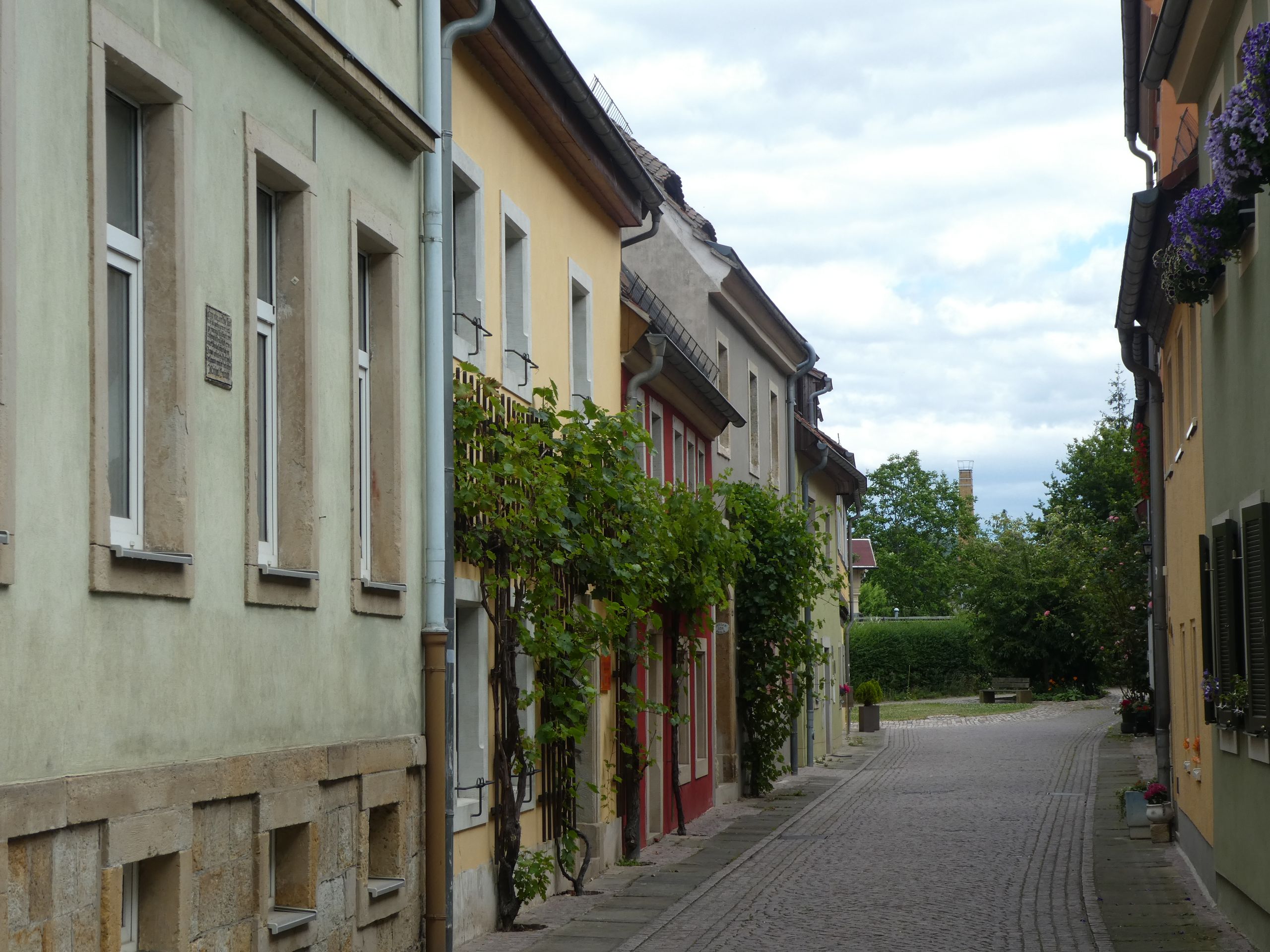
The market square 'Am Plan' in this part of the city was much quieter but also presented a pretty picture.
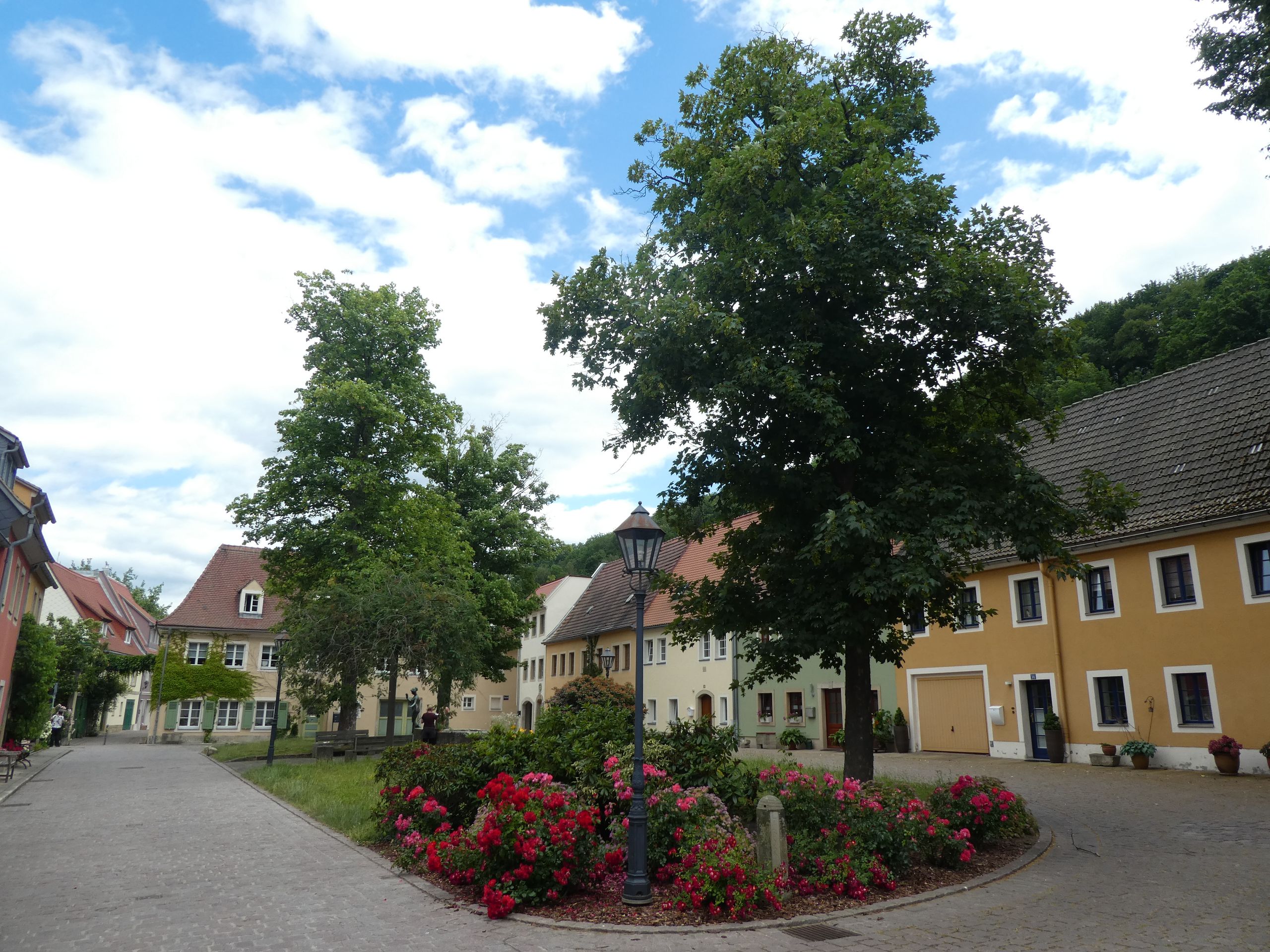
On some houses, we saw markings of the Elbe flood levels, which had destroyed parts of the cities, as we had seen in other cities before. Neither in 2002 nor in 2013 could we have stood here...

As the weather was so nice, we wanted to have ice cream and went back to the more lively part of the city.
Unfortunately, there were so many people out and about that it wasn't easy to find a table in a café. Finally, though, we got an ice cream sundae after waiting in line for quite a while.
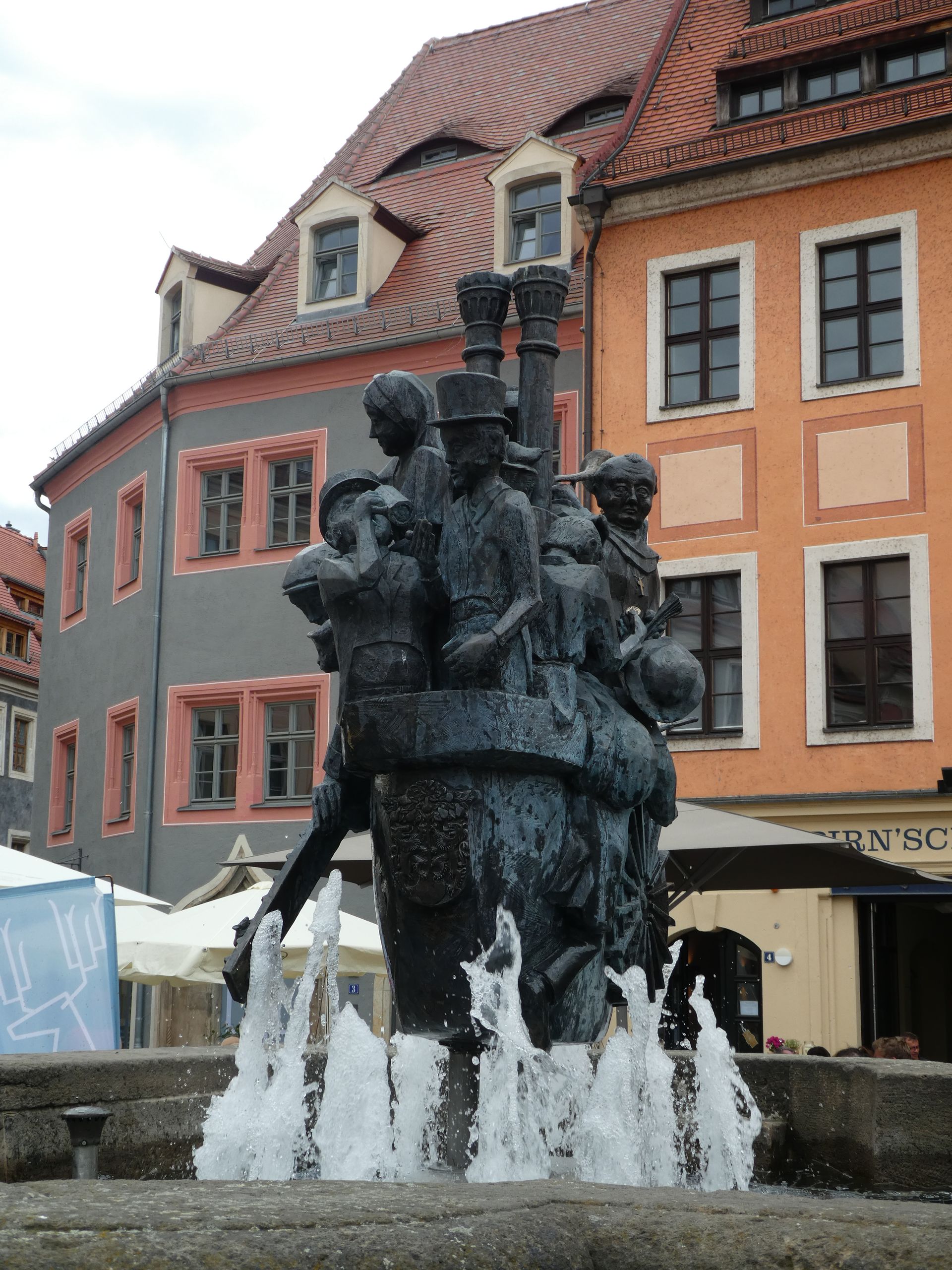
We still had some time left, so we continued to Bad Schandau, the most important spa town in Saxon Switzerland. There were beautifully landscaped promenades and many restaurants with a view of the Elbe river.
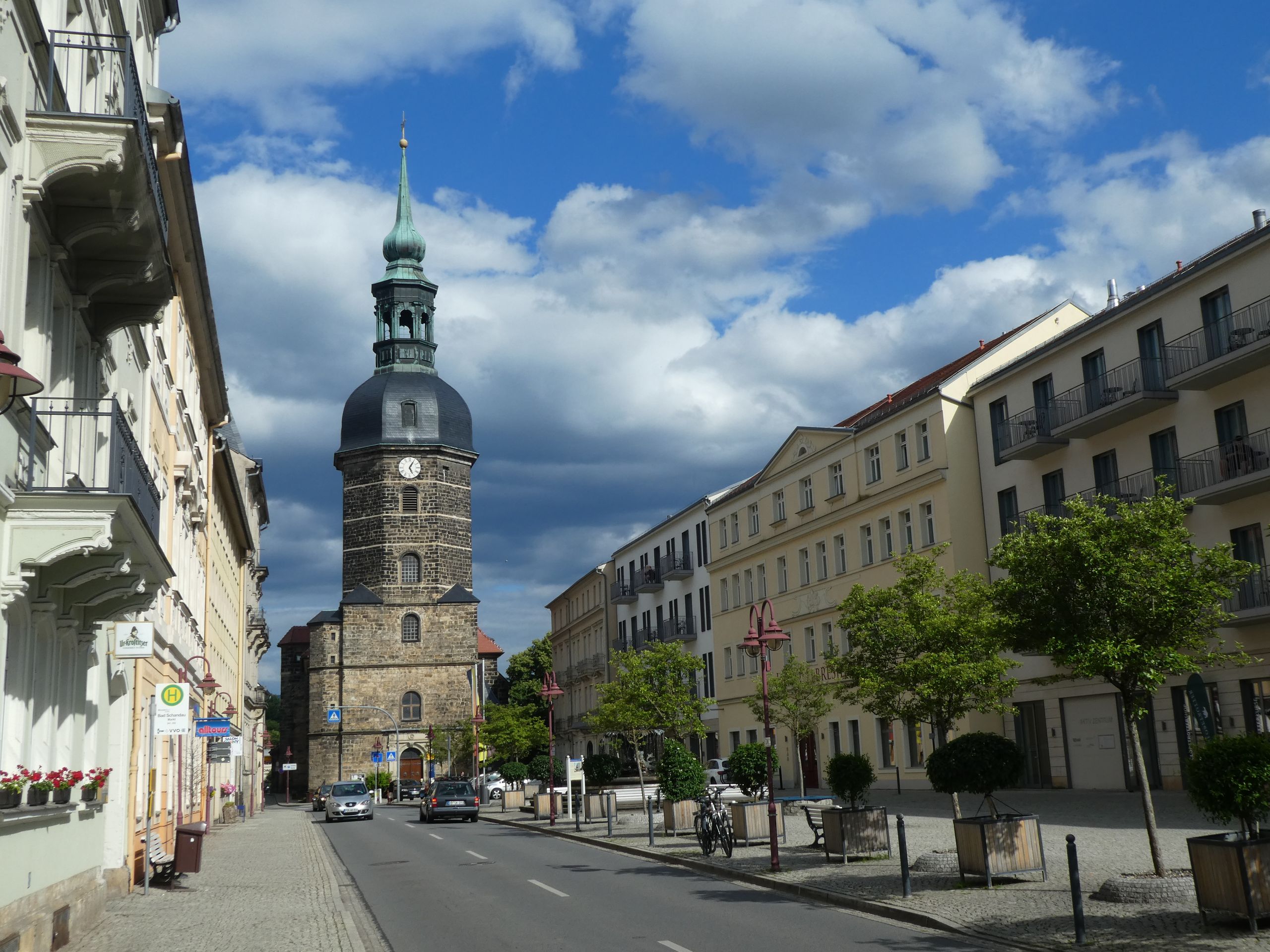
But we wanted to go in search of lynxes. After being eradicated in Germany, some of these wildcats have now migrated back from neighboring countries.
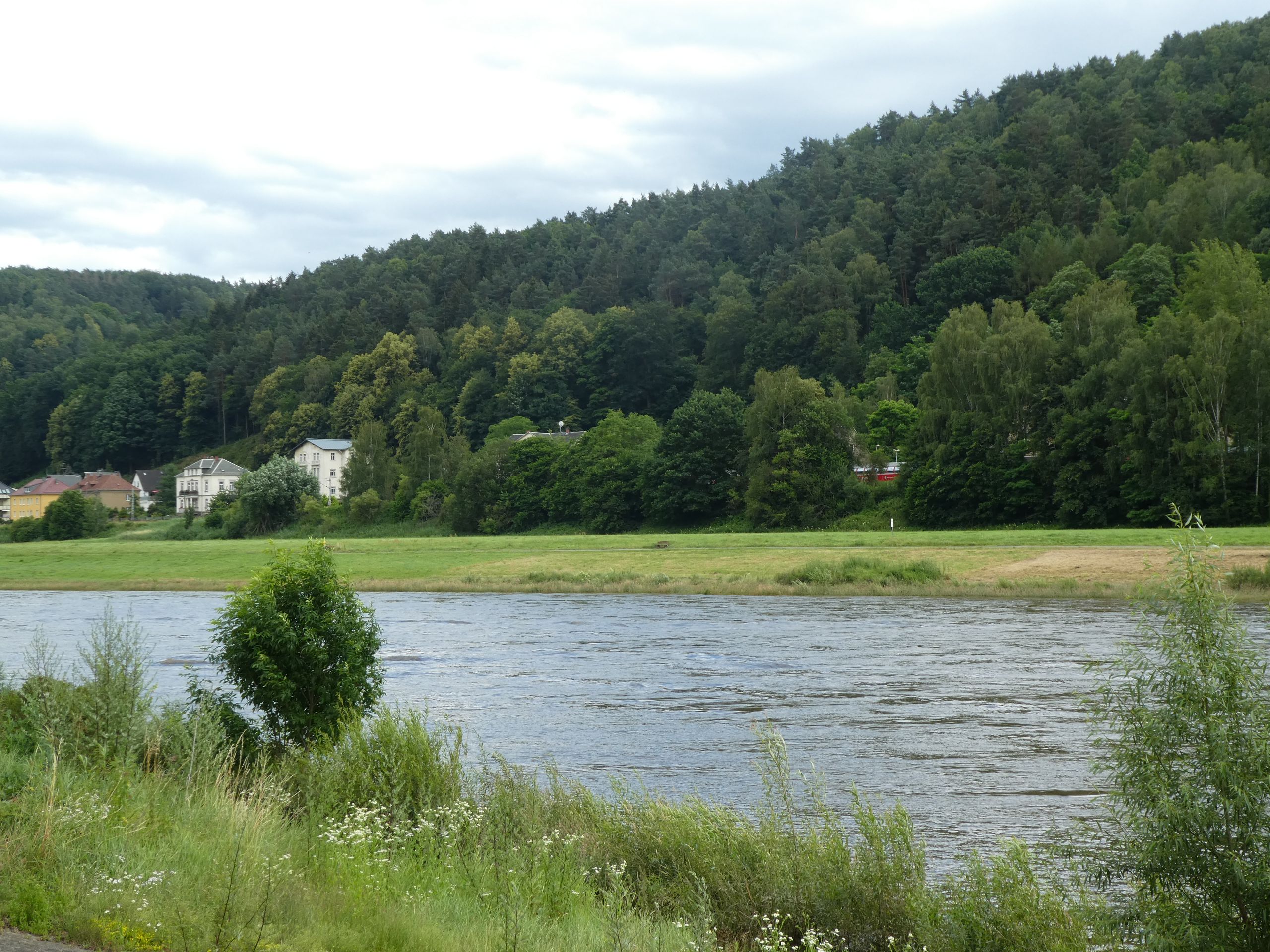
We started our search at the parking lot by the Elbe river and followed the tracks depicted as paws in stones embedded in the ground.
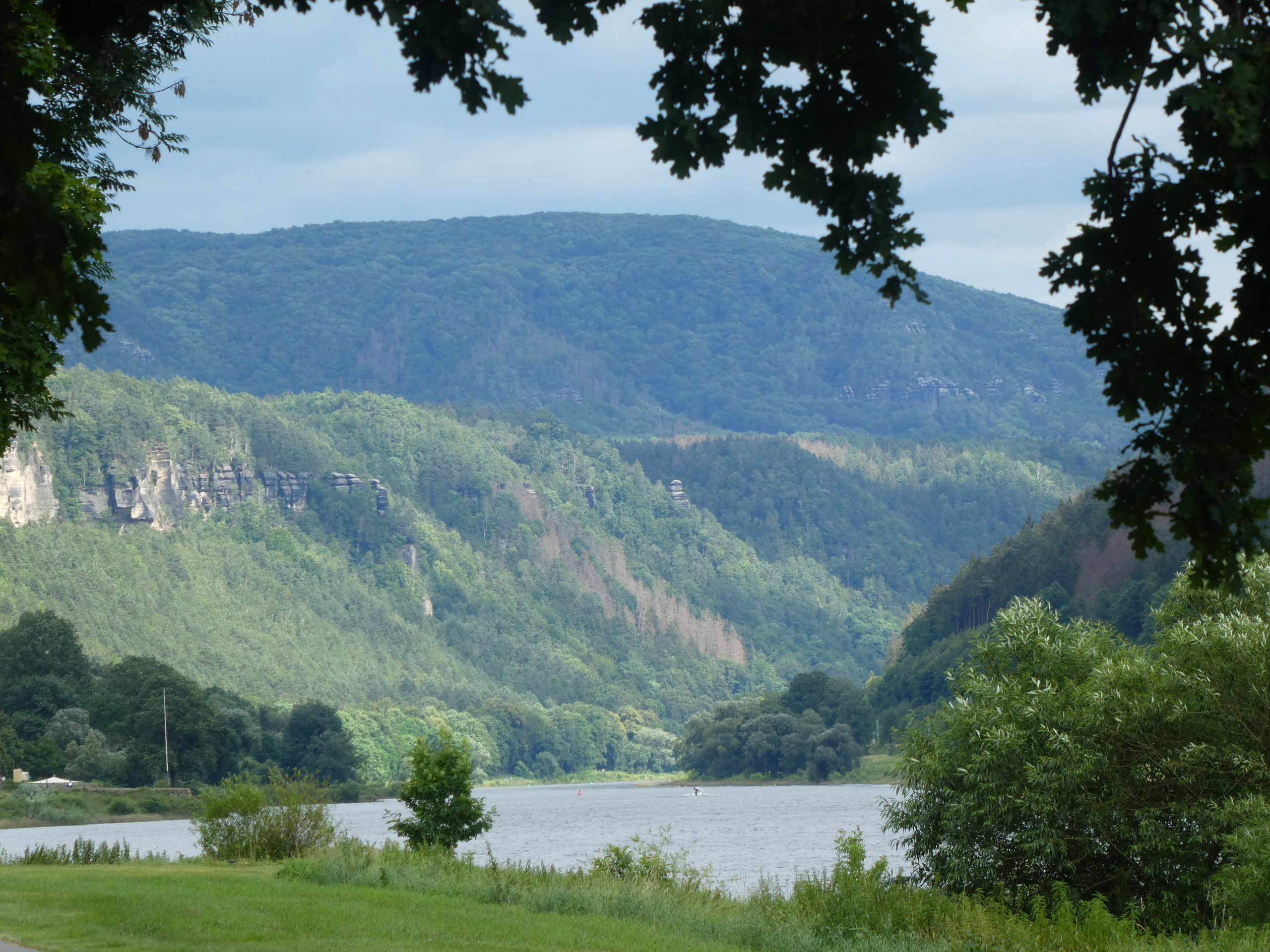
The 'Luchsweg' led us to an elevator that was designated as a 'technical monument' (which didn't inspire much trust in us). We used it to go up and were able to admire the view of Bad Schandau.
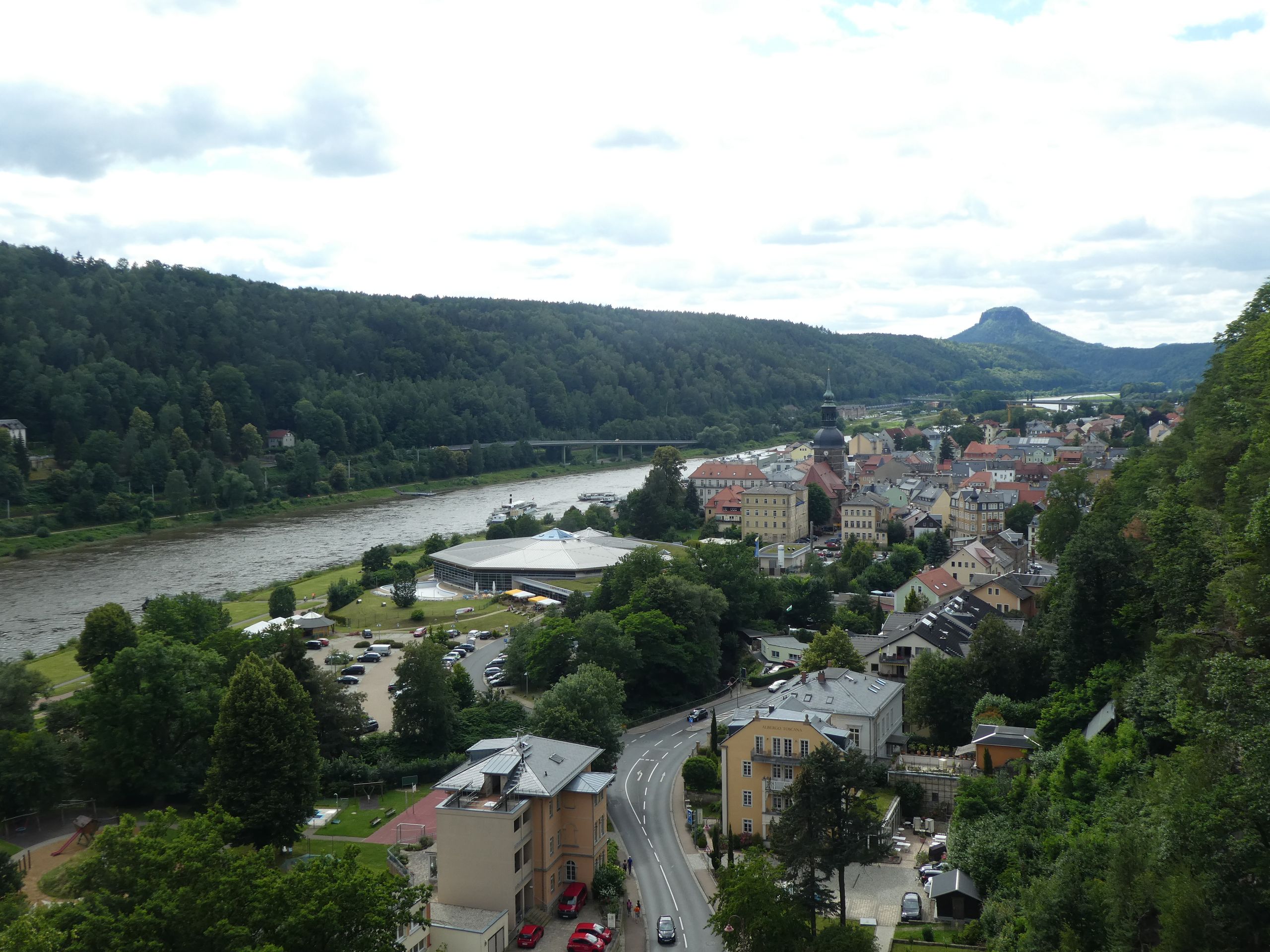
Then, we finally spotted what we had been looking for: a wildlife enclosure housing two lynxes (though separated, as they are solitary animals).
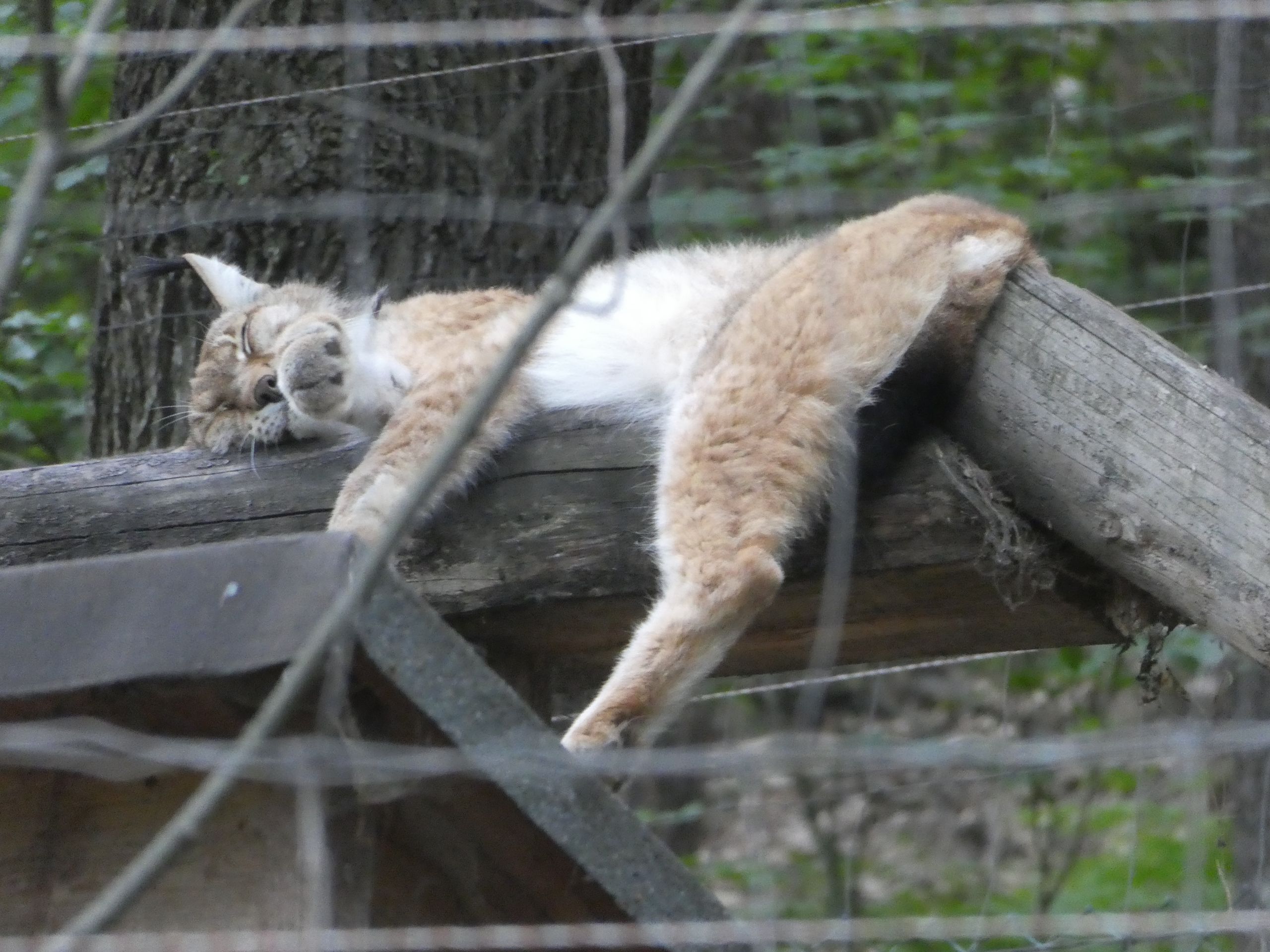
As it was still mid-afternoon, both of them were resting. We sat on a bench by the enclosure, hoping to see some movement - but unfortunately, in vain. The lynx only turned its back to us and showed no signs of life except for an occasional twitch of its ears:
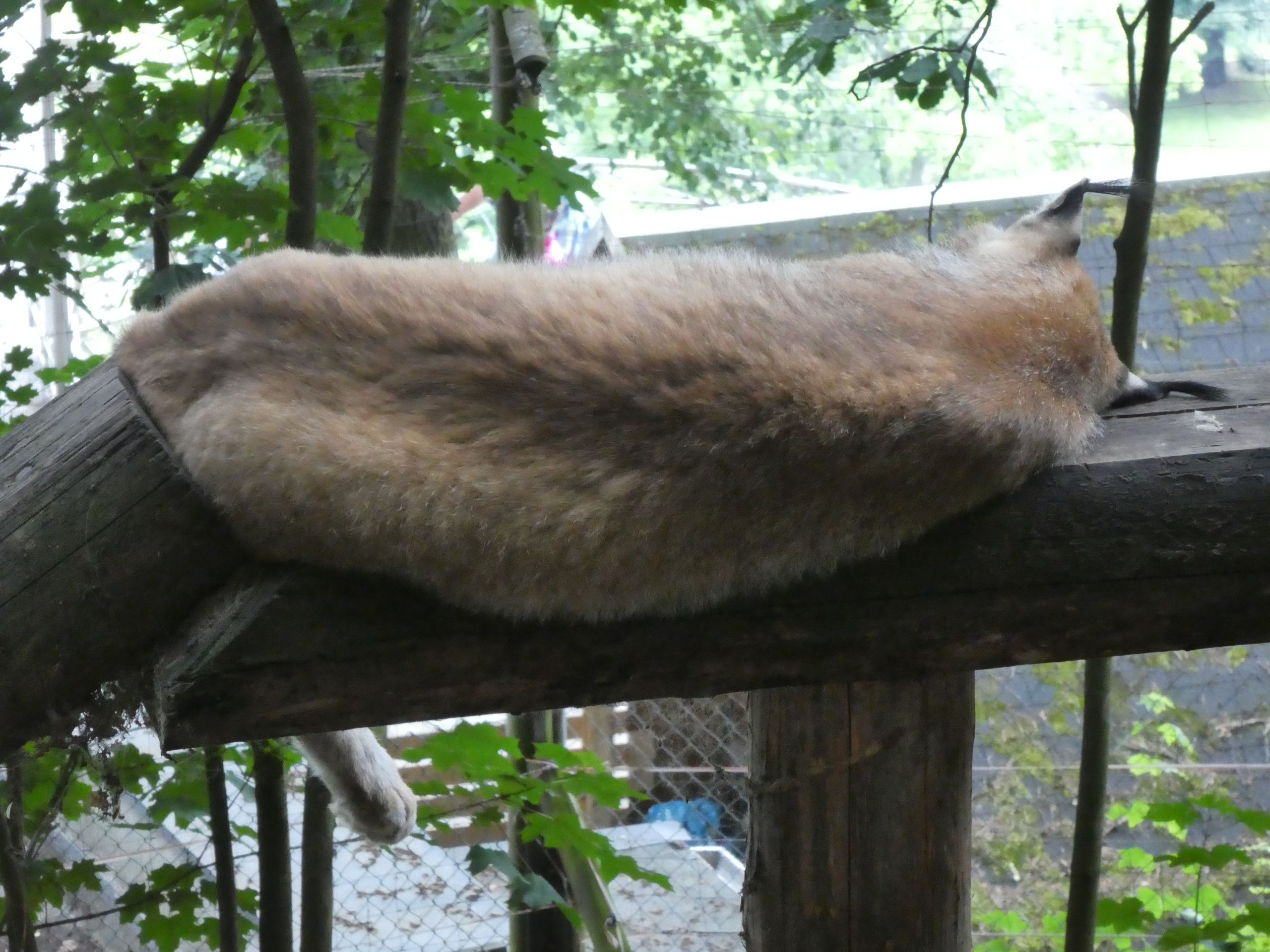
So we continued walking, past a viewpoint (which was already somewhat overgrown), through the spa park, and back to the Elbe river, where our car was waiting for us.
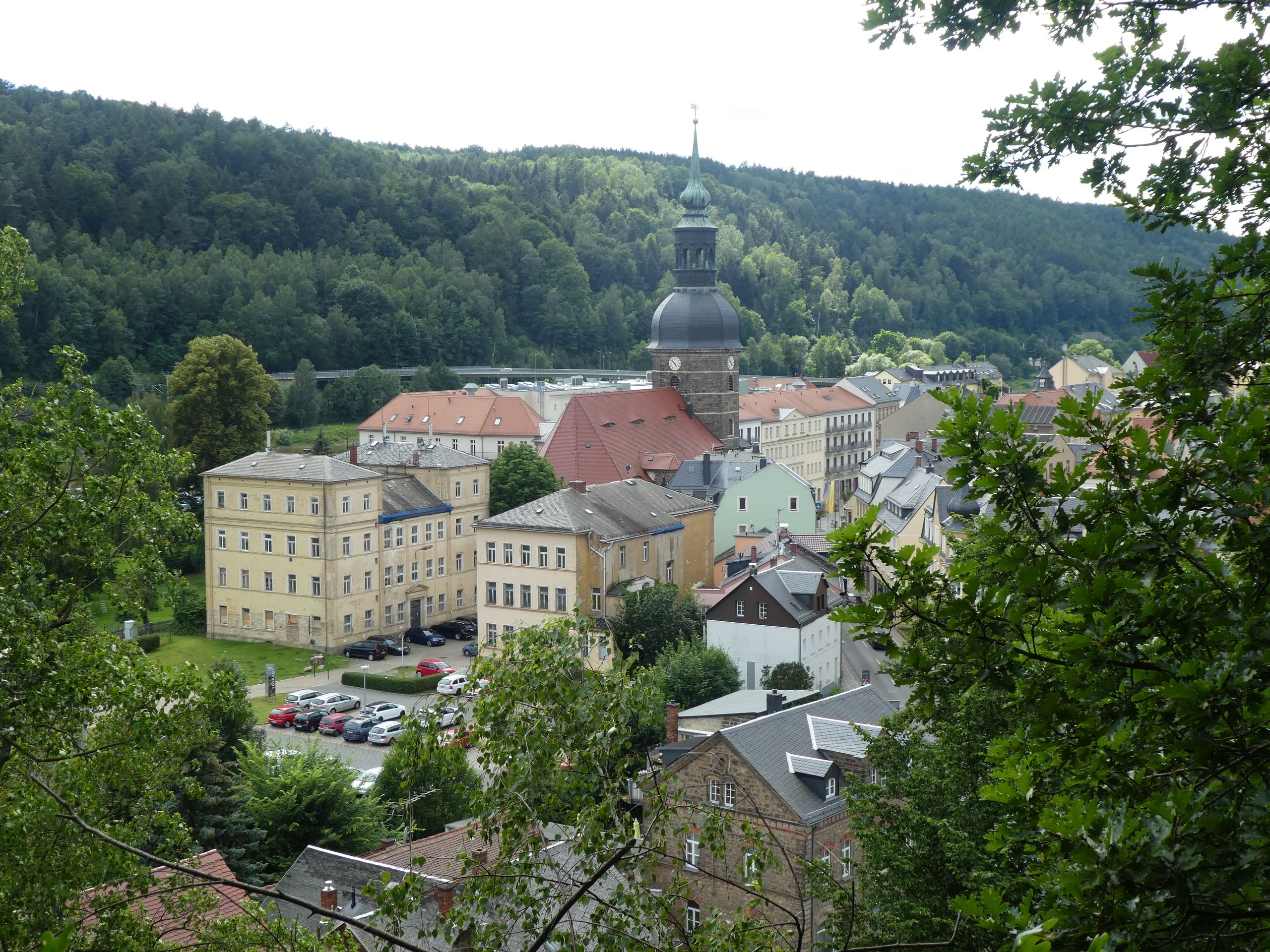
Naročite se na glasilo
Odgovori (2)
Ina
Die Steine sehen ja interessant aus. Schade, dass ihr keine Luchse in freier Wildbahn gesehen habt. Liebe Grüße Ina
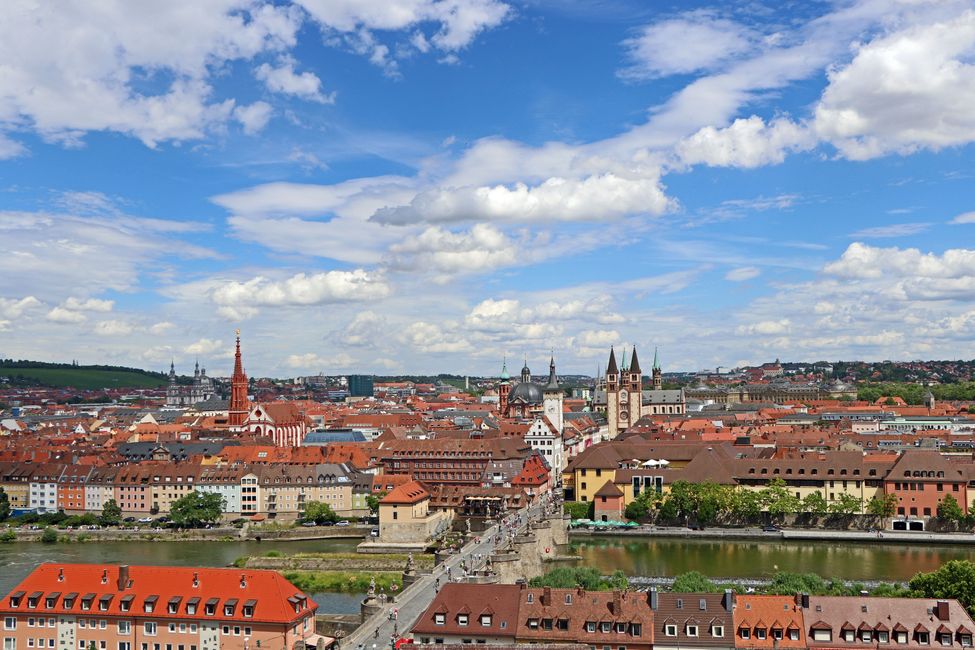
Poročila o potovanjih Nemčija
